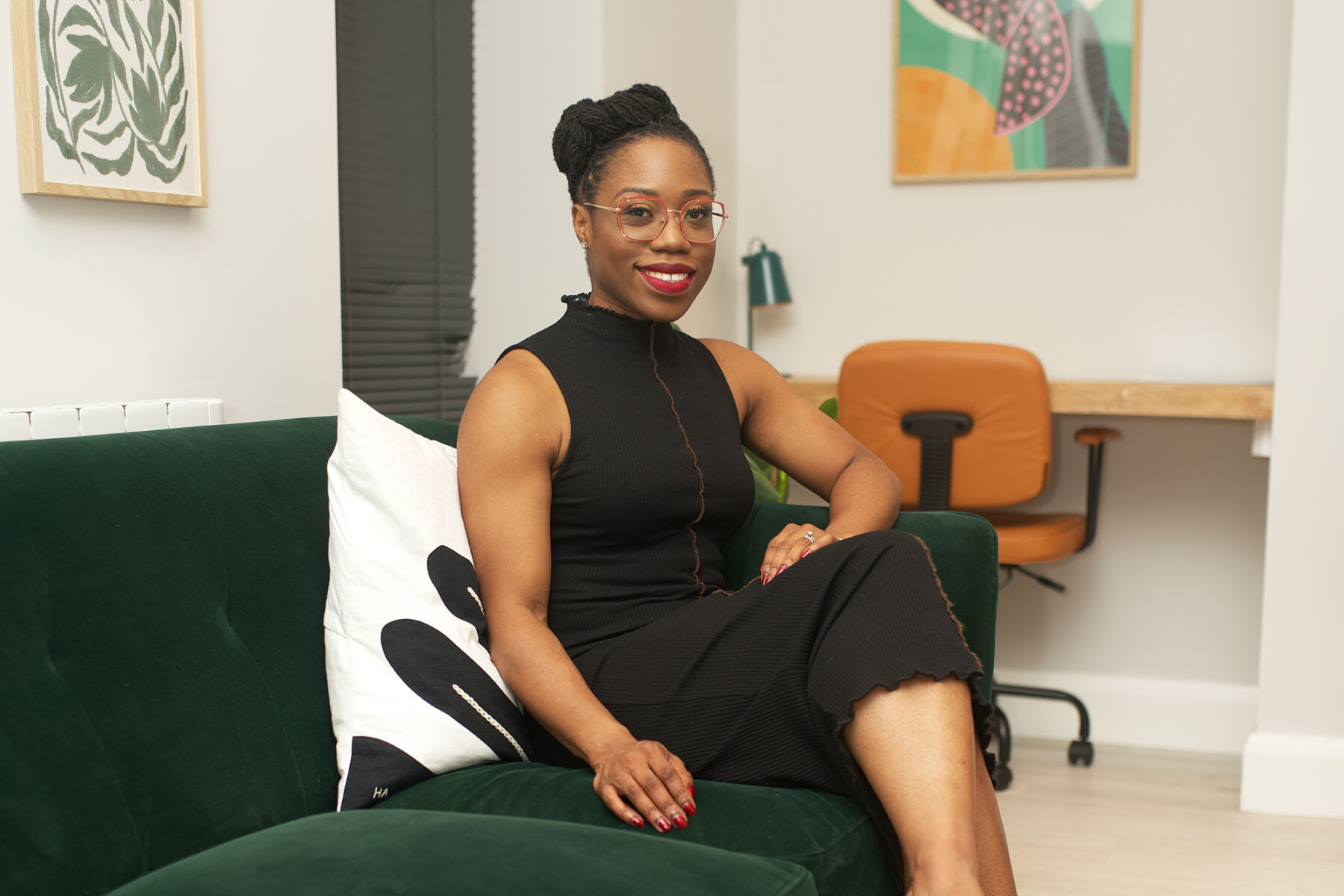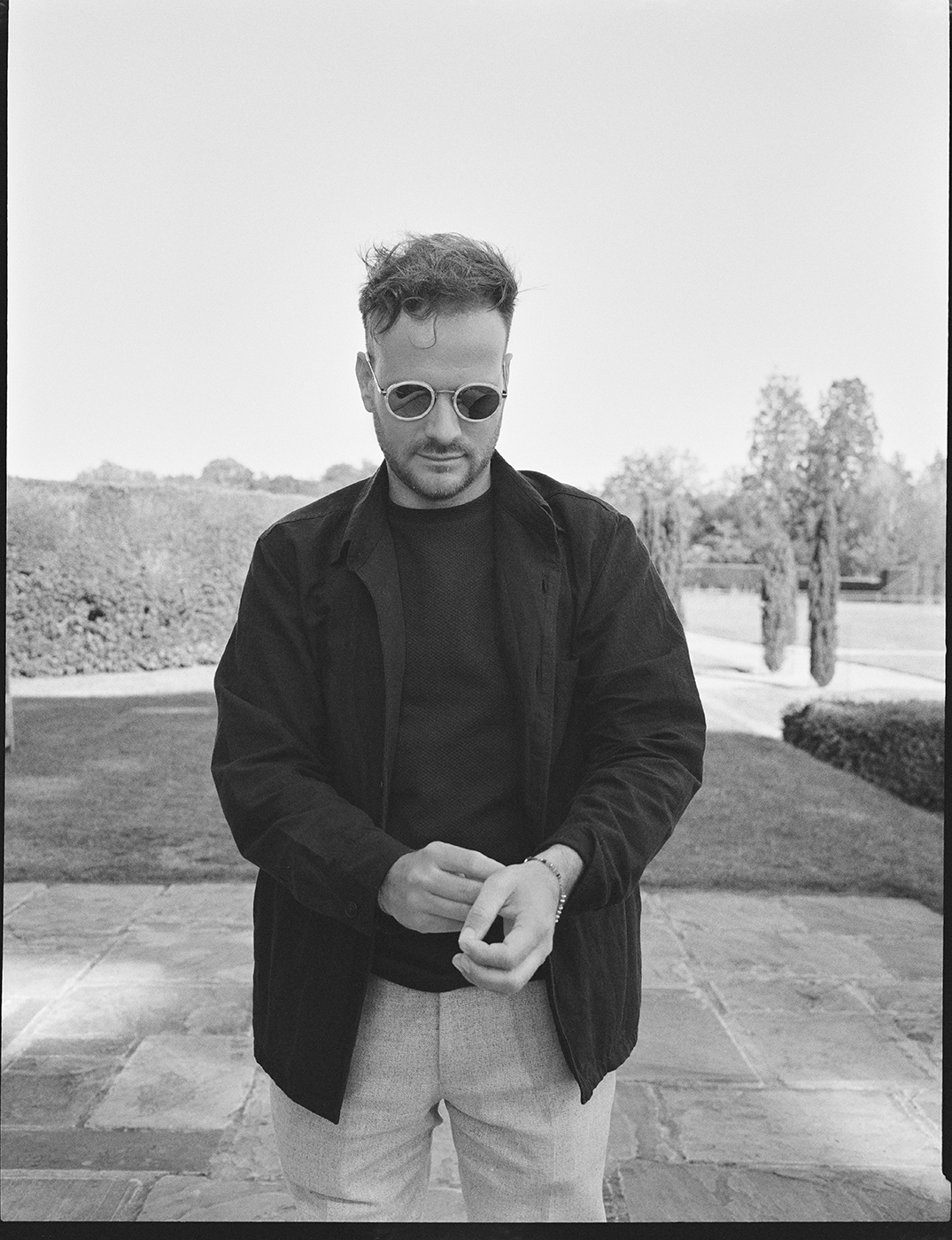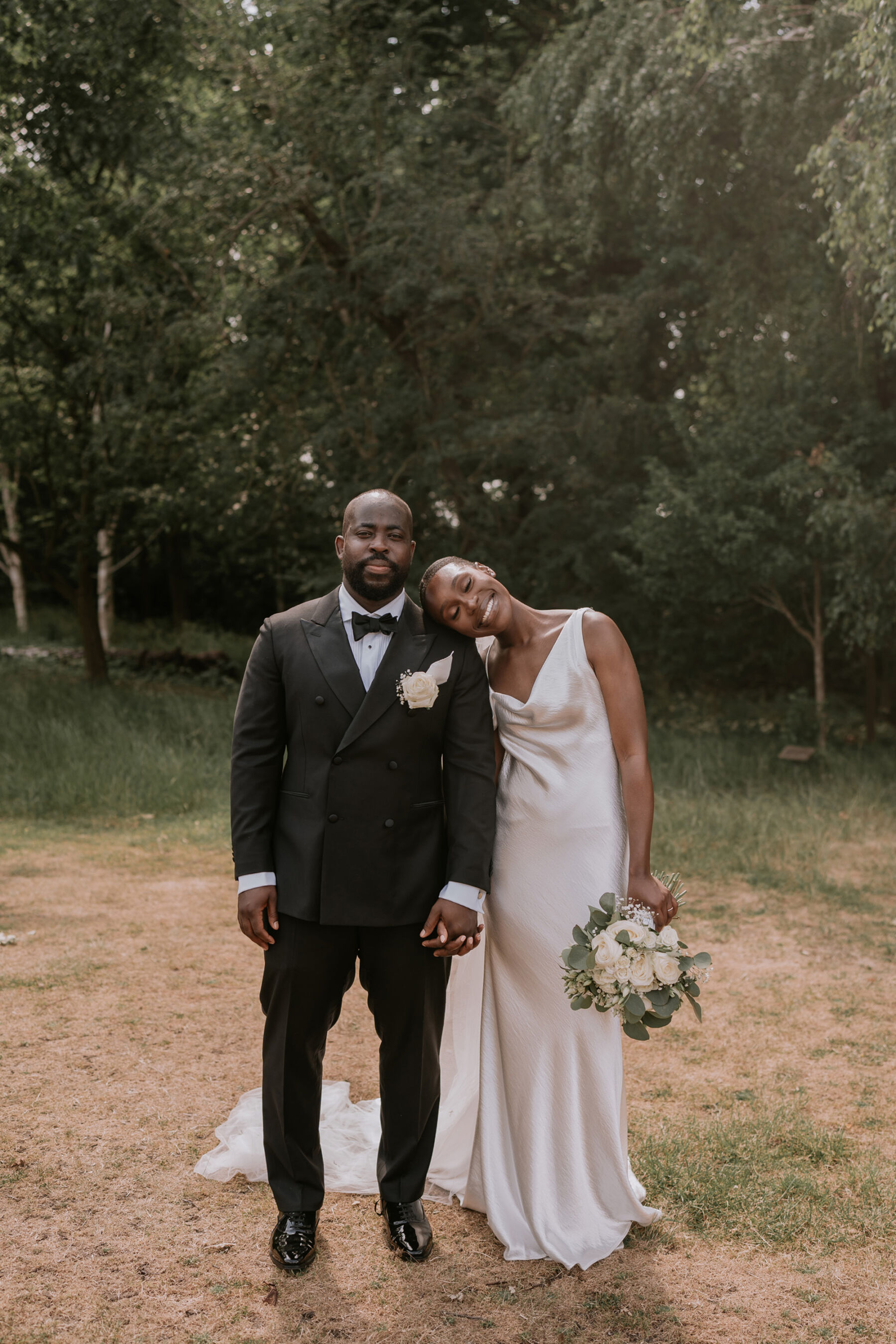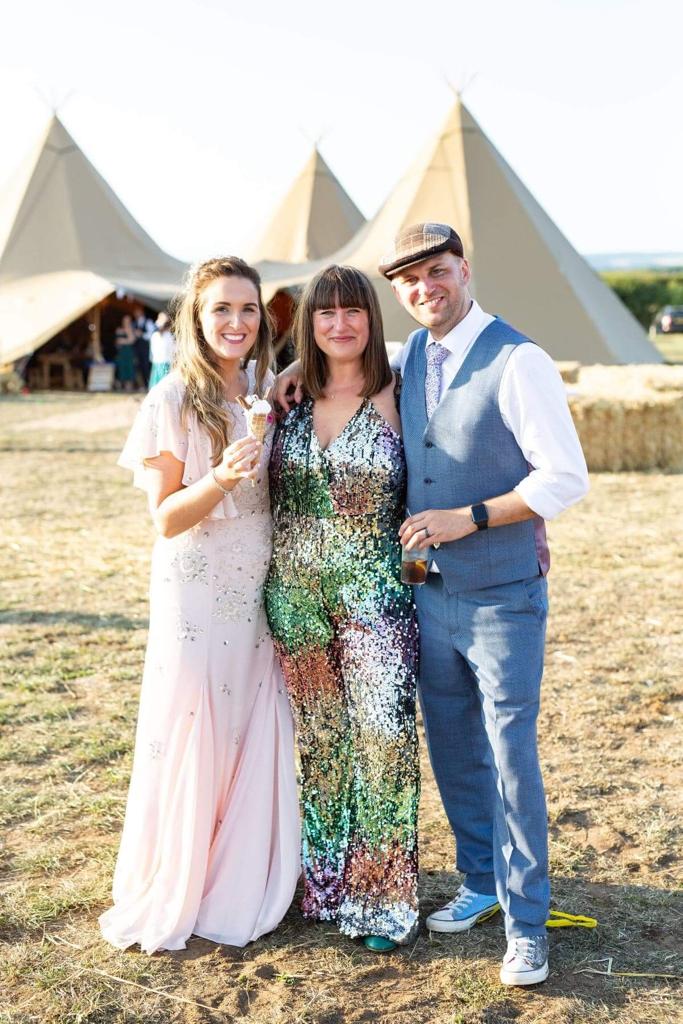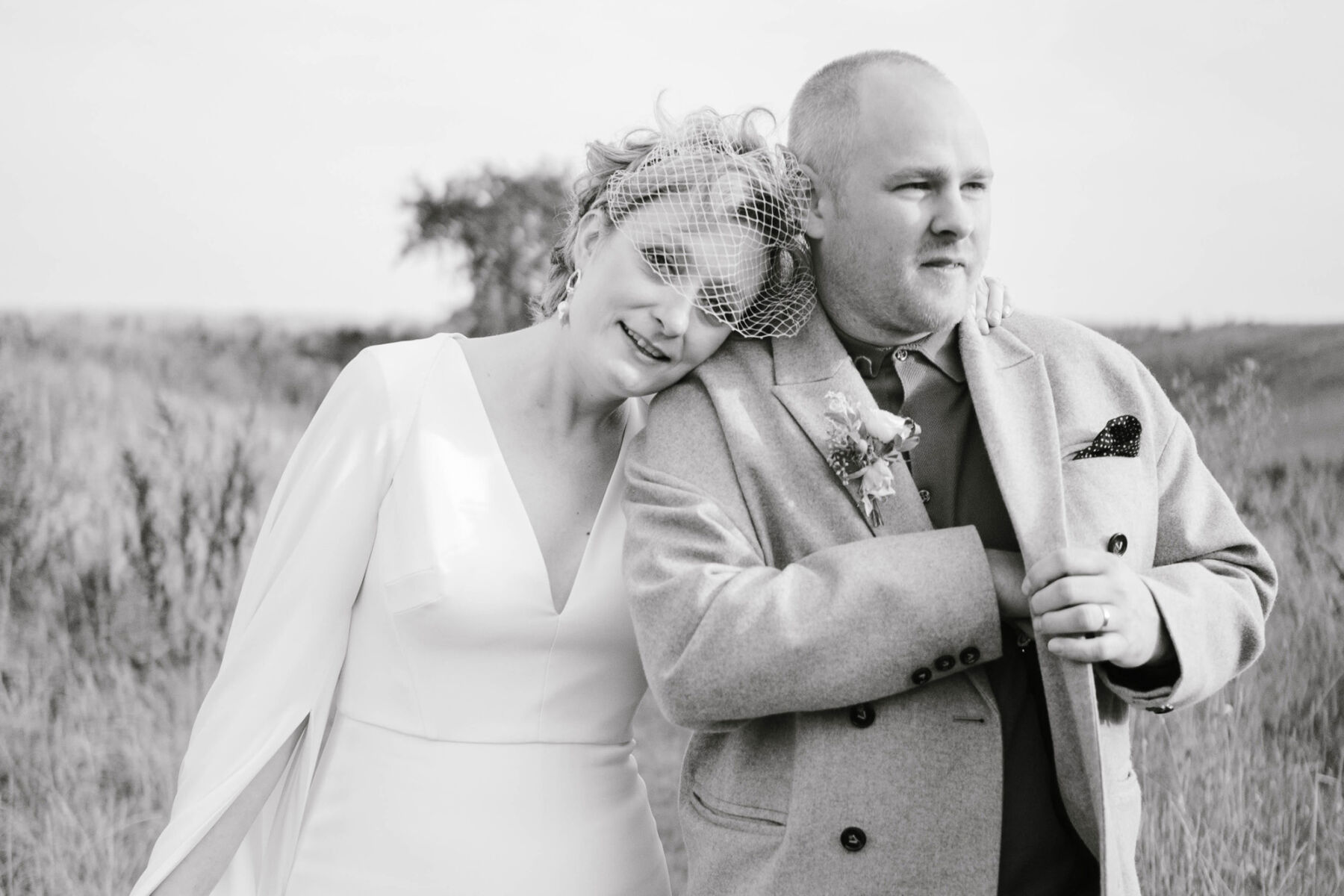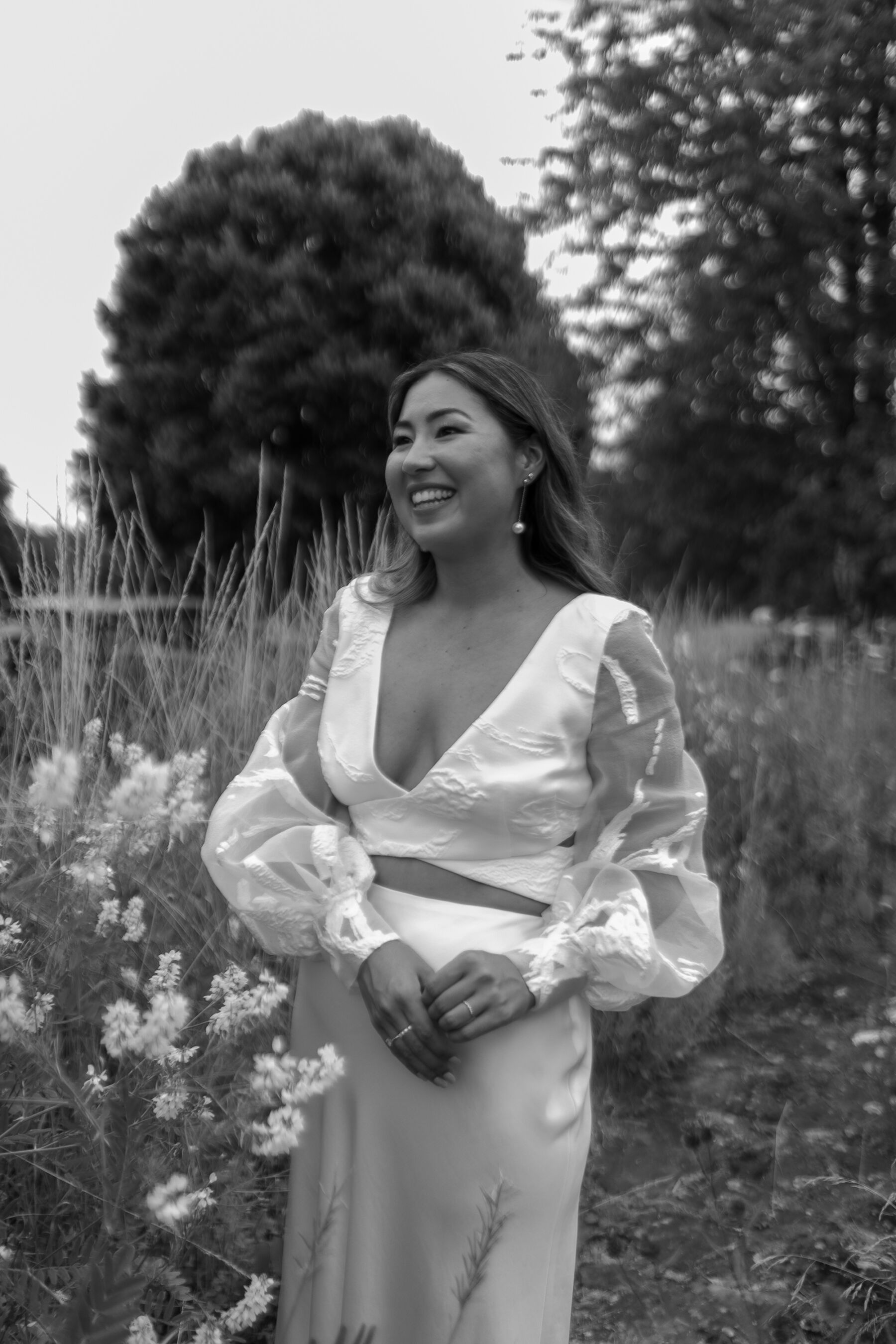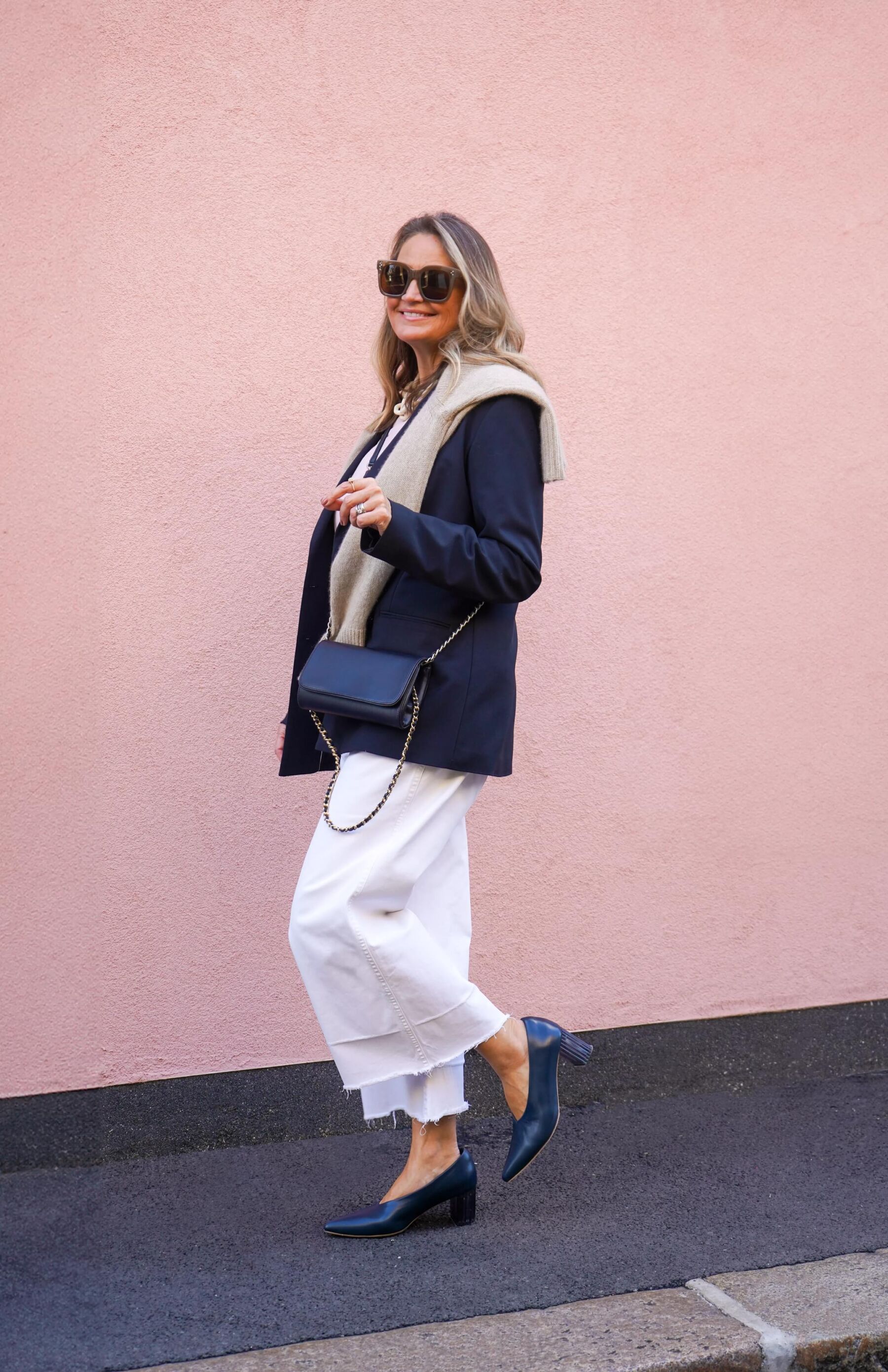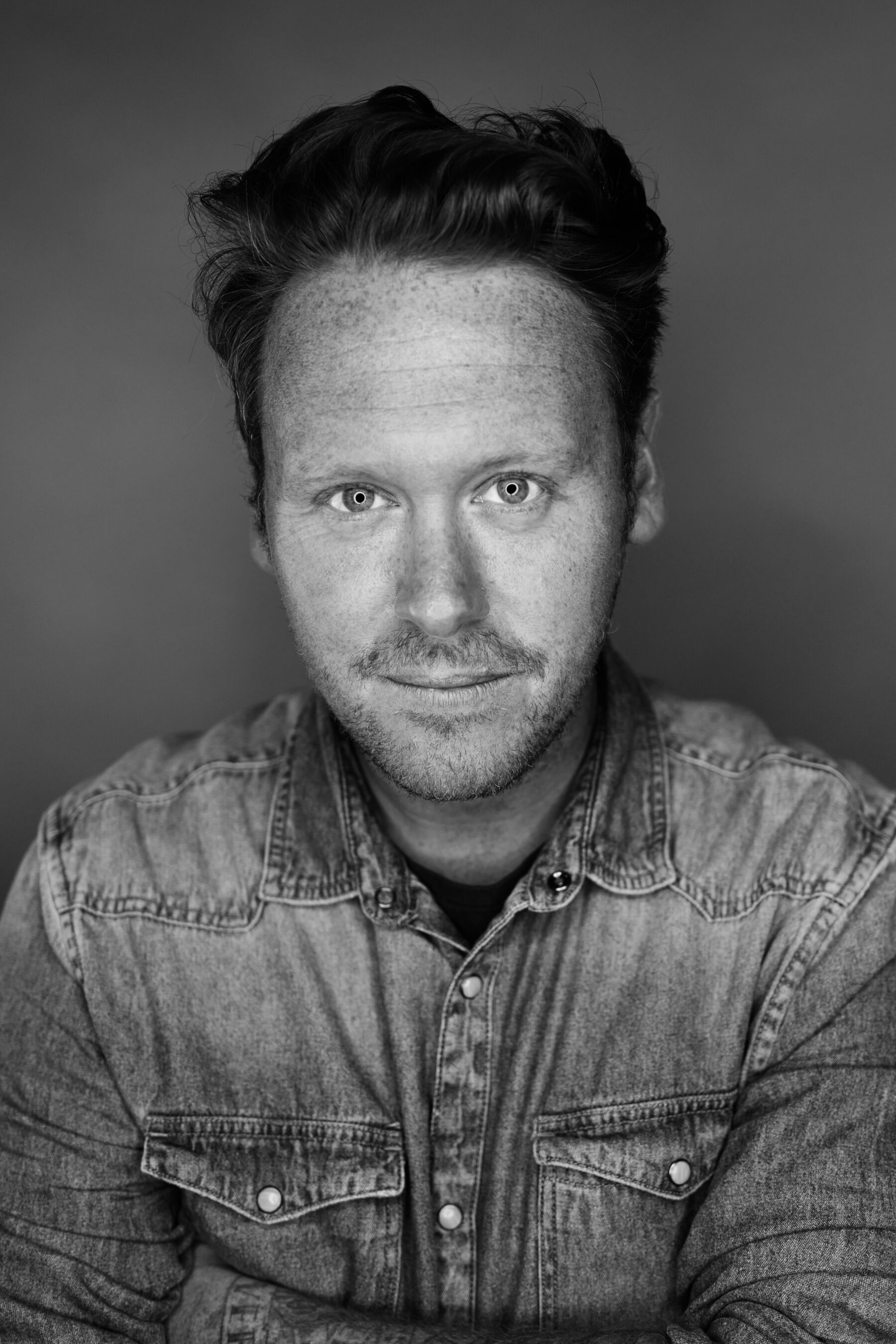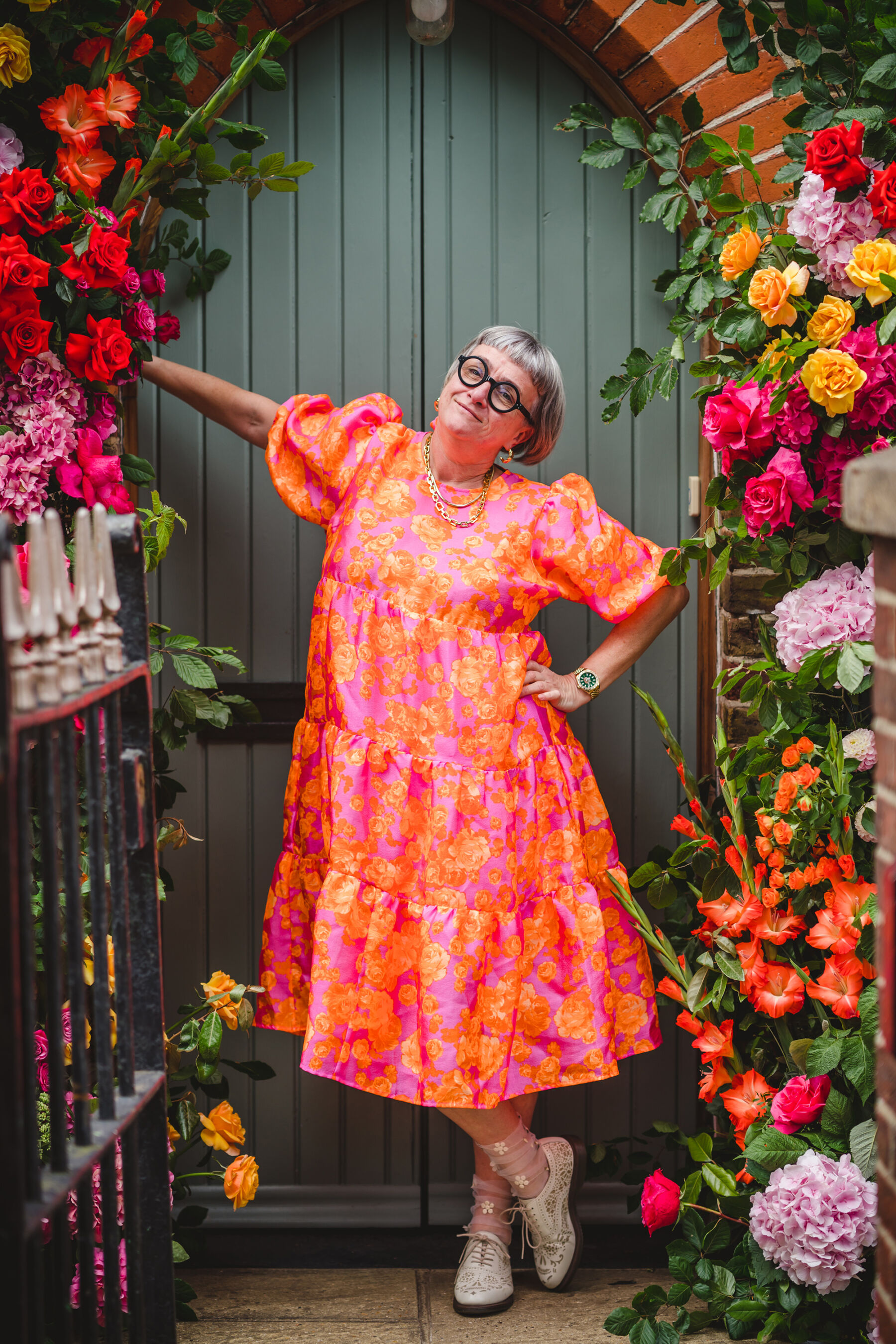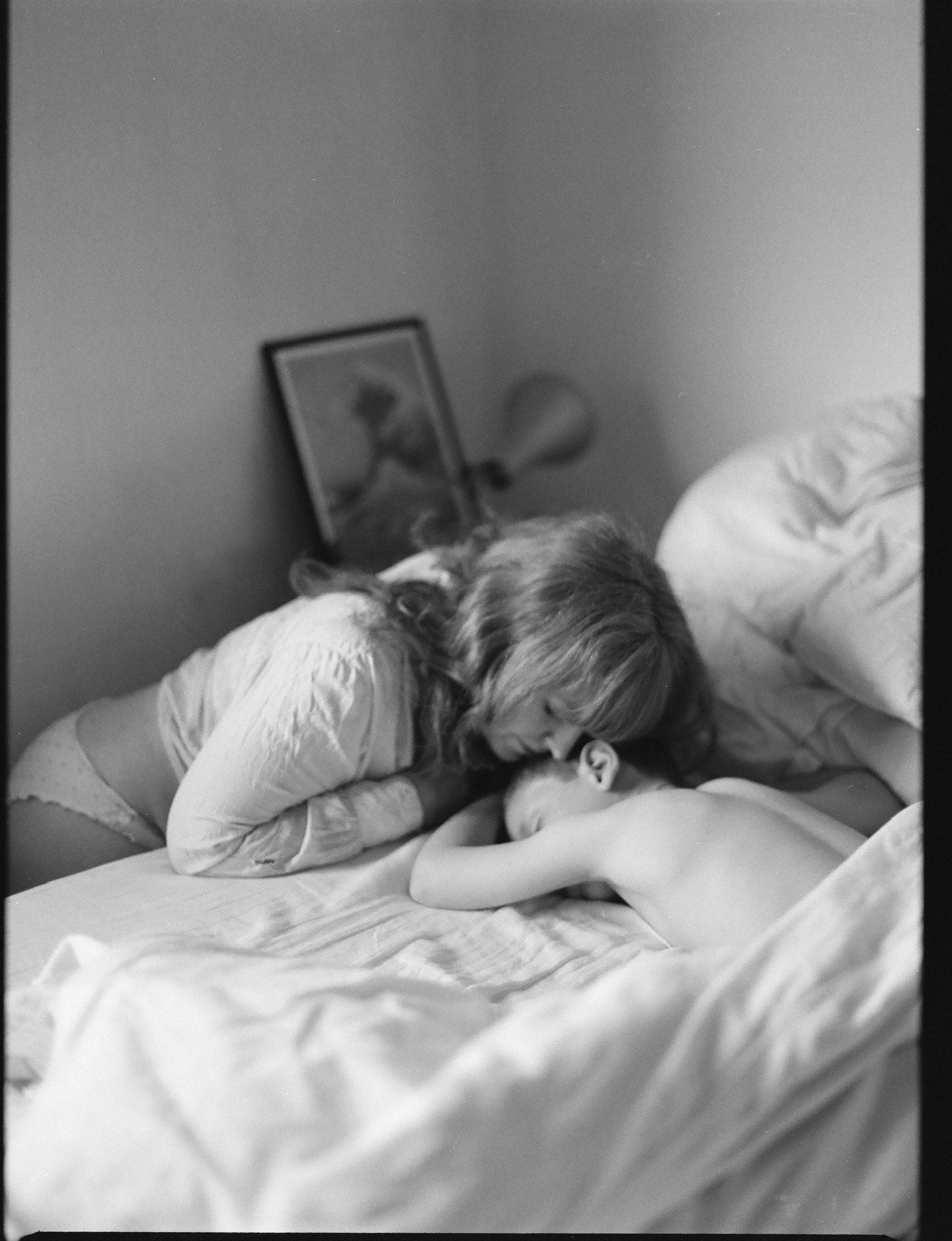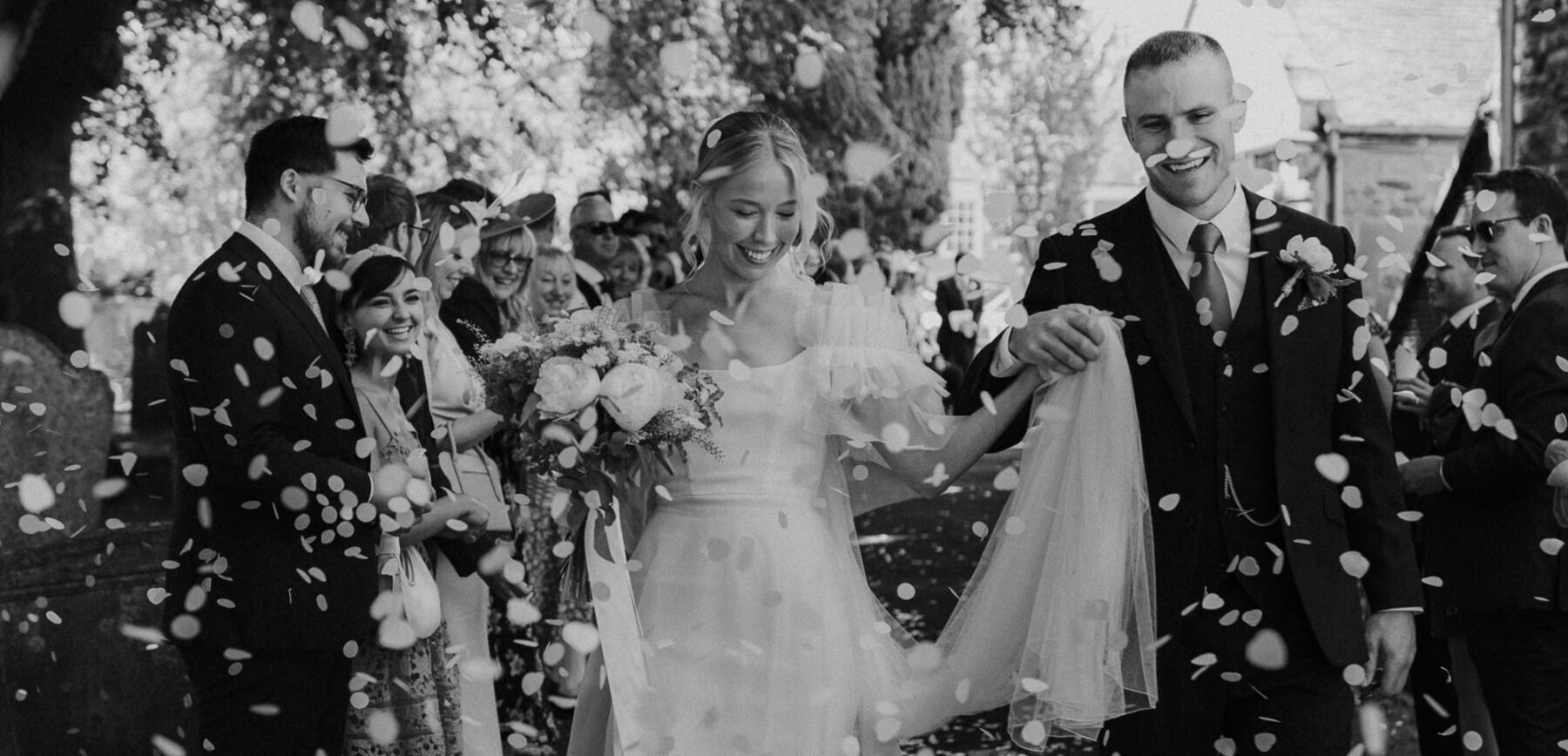My guest in Episode #8 of The Love My Dress Podcast is Assumpta Vitcu, the gracious and visionary founder of Ave Creations, a multi-cultural wedding planning company that creates luxury experiences for couples from diverse backgrounds.
Assumpta’s talents extend far beyond her exceptional work in wedding planning however. She is a writer, a flower enthusiast, a poet, and a talented spoken word artist. She is co-founder of Our Owambe – a blog and podcast created with the goal of redefining Black Love and celebration. She is also the creative talent behind Ave Blooms, a side-endeavour to deliver beautiful bouquets to clients across London and Essex.
avecreations.com
As a Black woman making her mark in the UK wedding industry, Assumpta brings a unique perspective and an essential voice that demands to be heard. Through her unwavering commitment to see a more diverse and inclusive wedding industry, Assumpta is helping to revolutionise the way we all perceive and experience weddings.
She proudly and fearlessly embraces her identity, using her skills as a compassionate empath to break down barriers and foster an environment where love, joy, and cultural traditions can flourish in harmony.
Beyond her professional accomplishments, Assumpta derives strength and support from her husband, Horia, with whom she shares a home and life in London.
As Assumpta prepares for her next career chapter, she has chosen to take several months out, to redefine her brand and business – a decision that exemplifies her self-awareness and commitment to driving positive, authentic and permanent change in an industry that still has significant strides to make in becoming more diverse and inclusive.
Join me for a thought-provoking and inspiring conversation as we dive into the world and beautiful, creative mind of Assumpta Vitcu.
avecreations.com
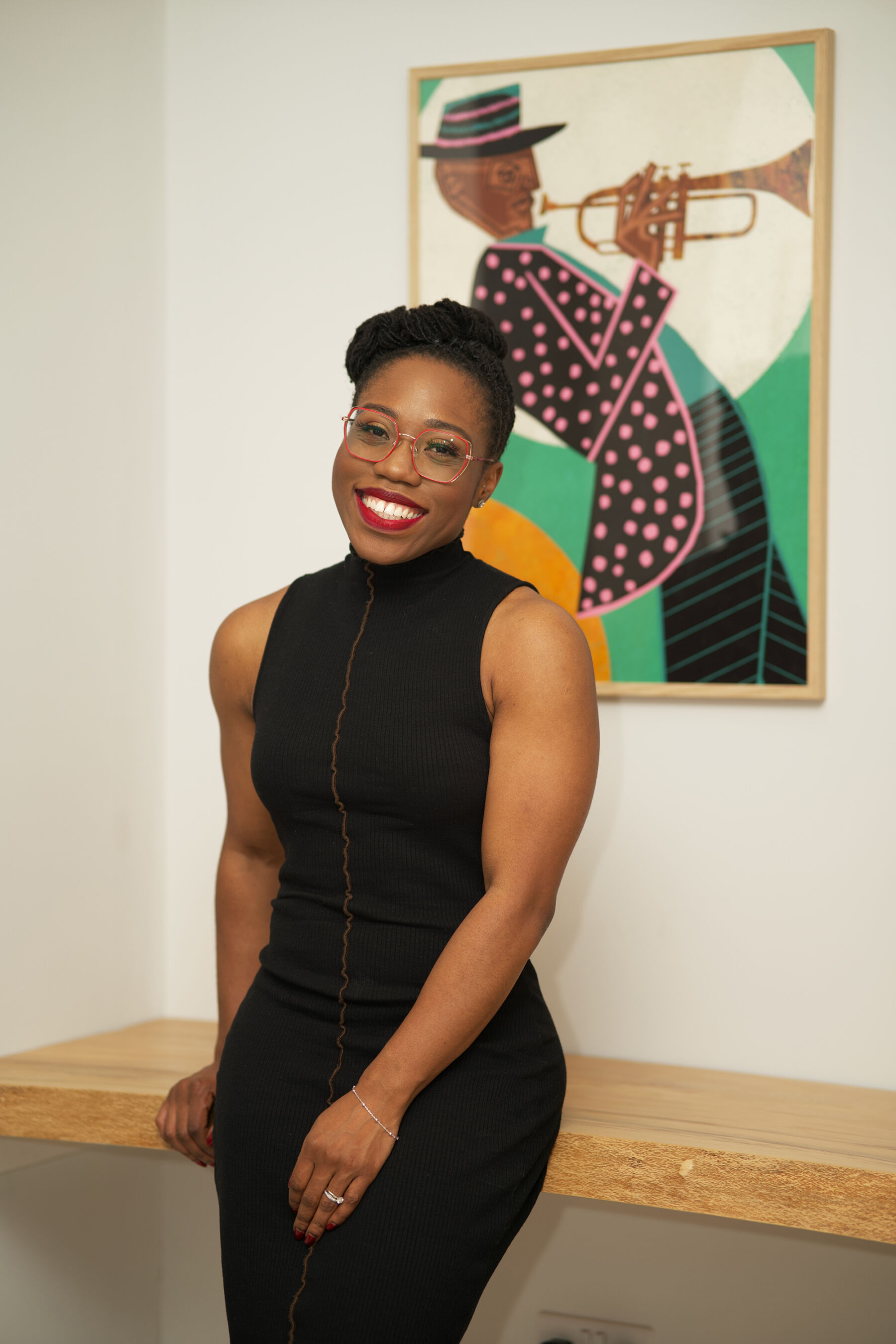
Please Follow, Rate & Review The Love My Dress Wedding Podcast
Countless hours of dedication and passion have been poured into producing this podcast. Created from the heart, The Love My Dress Podcast aims to provide a welcoming sanctuary not only for those deeply involved in the wedding industry but also for couples planning their weddings, individuals with a general interest in entrepreneurship, and anyone seeking a refreshing departure from conventional wedding planning content.
Please kindly take a moment to subscribe to The Love My Dress Podcast via Spotify or Apple and leave a short, friendly review or rating. These small actions will take seconds, but will make a huge difference.
I am so grateful for your support, thank you so much.
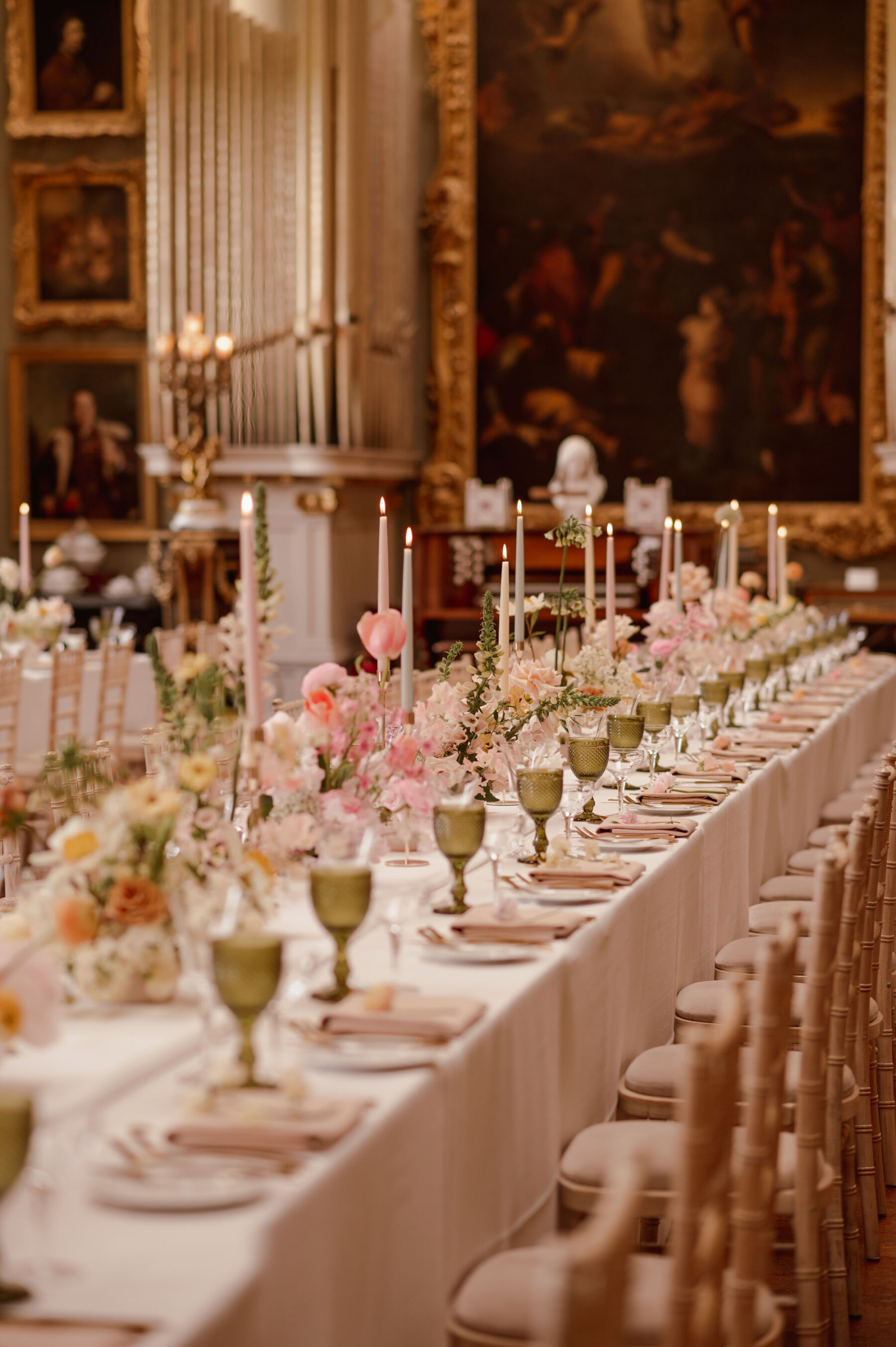
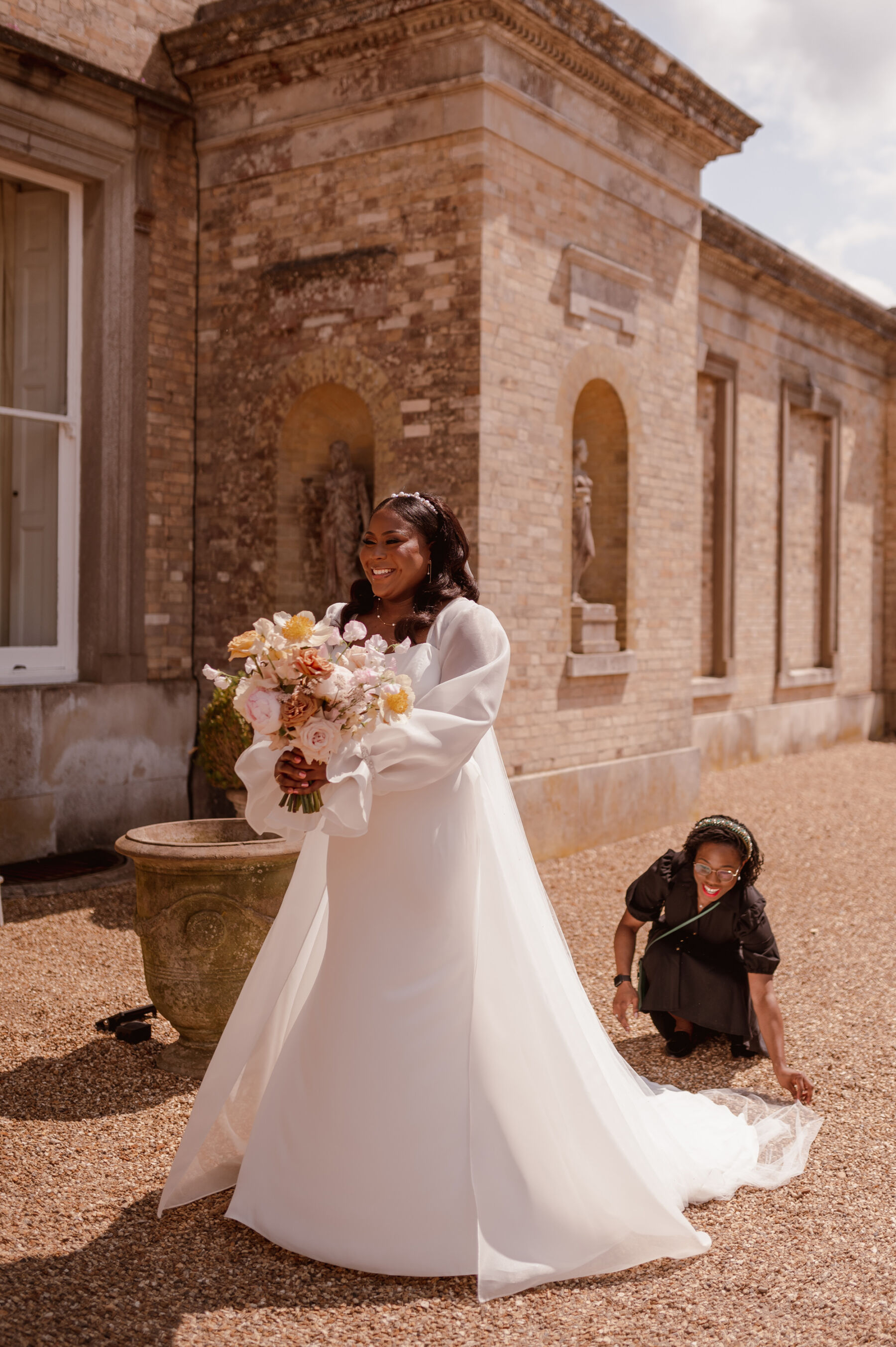
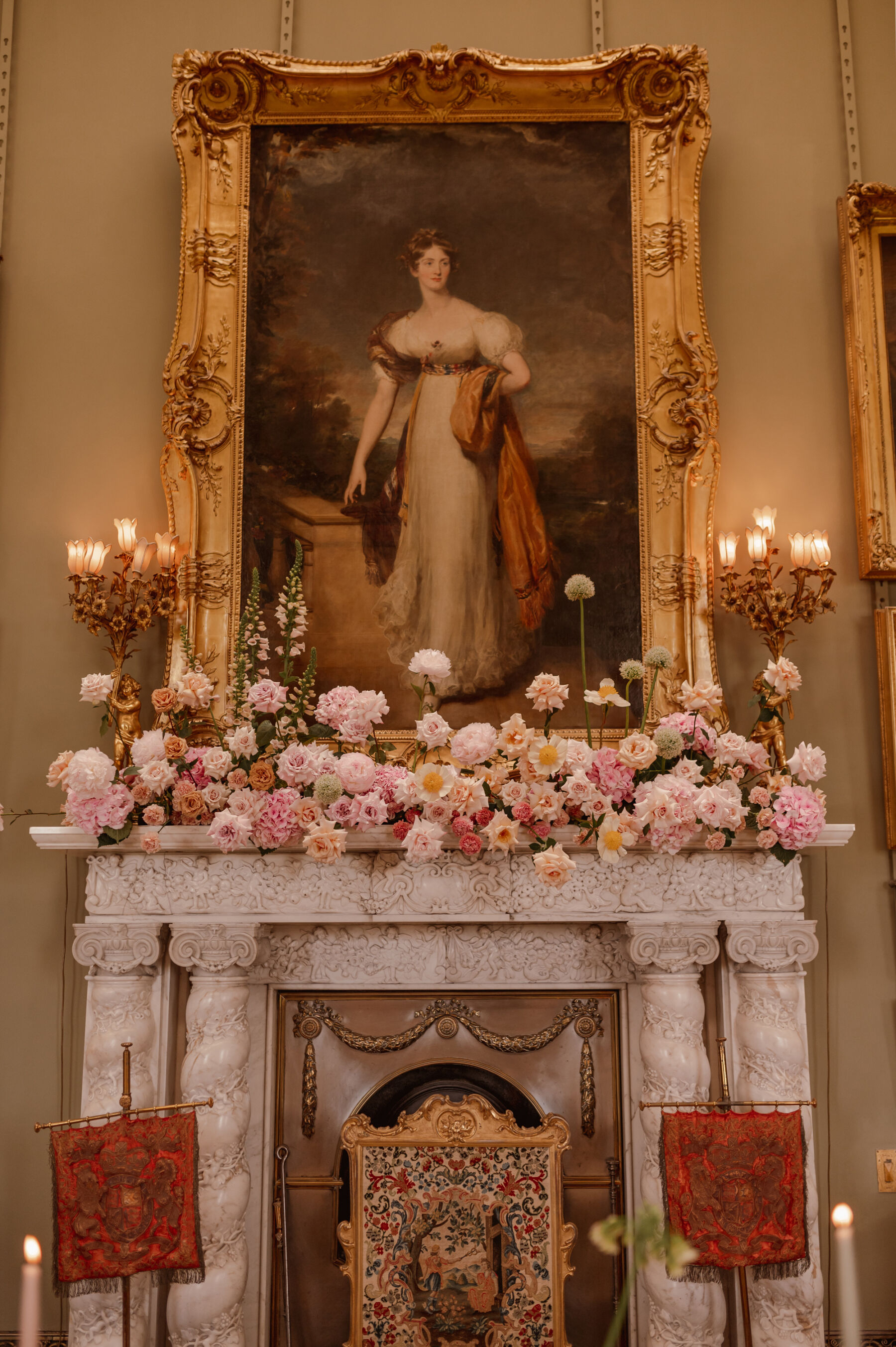
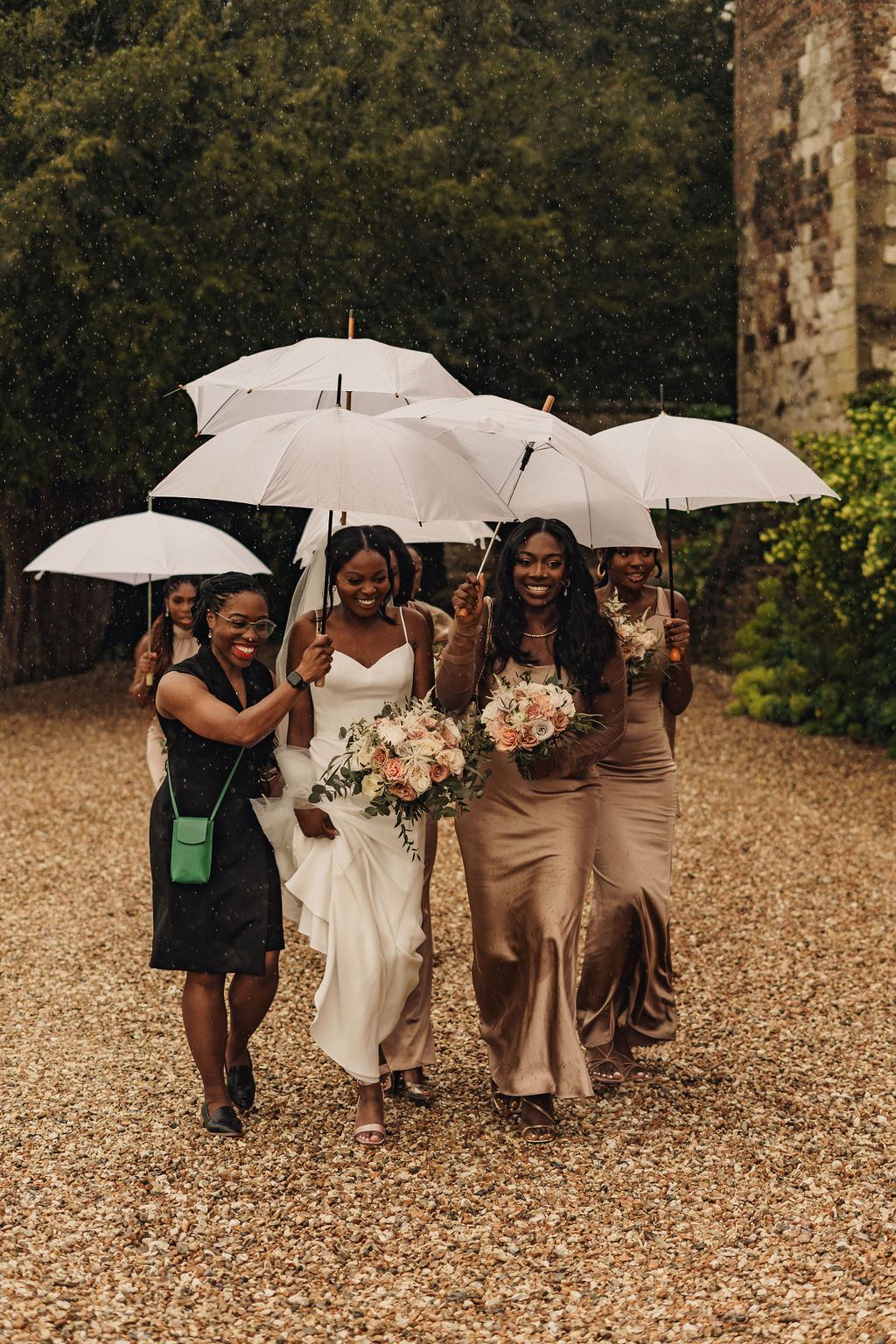
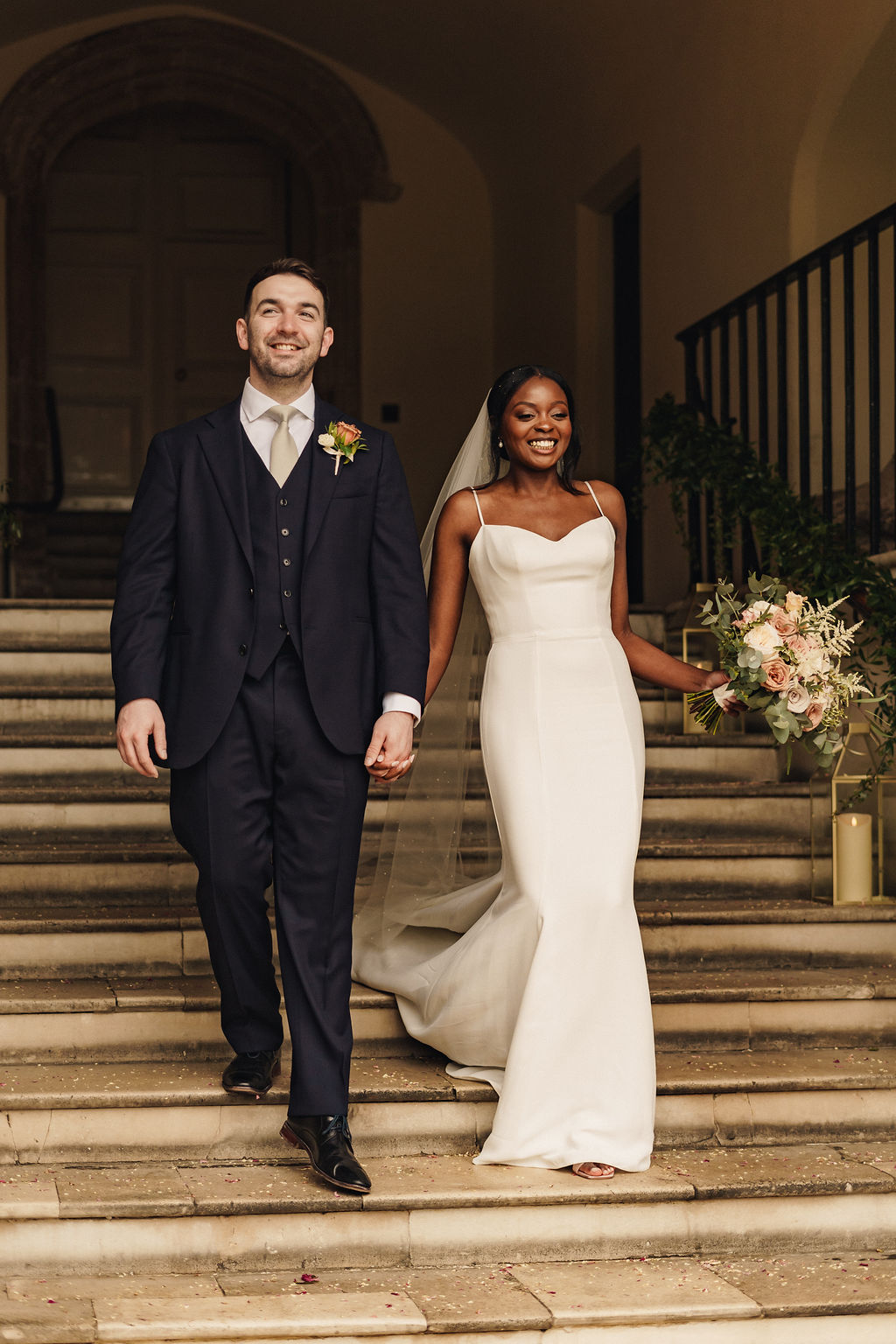
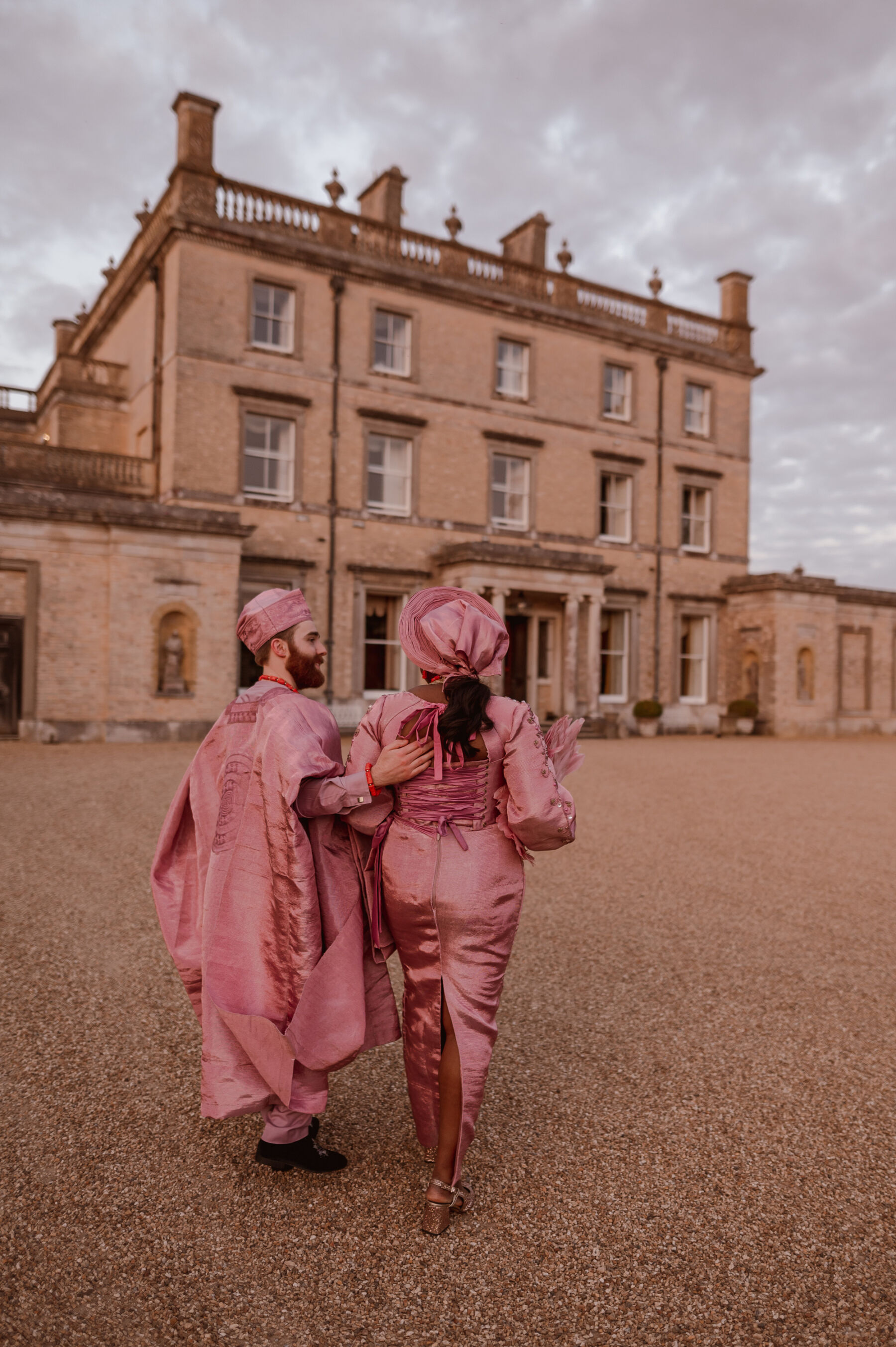
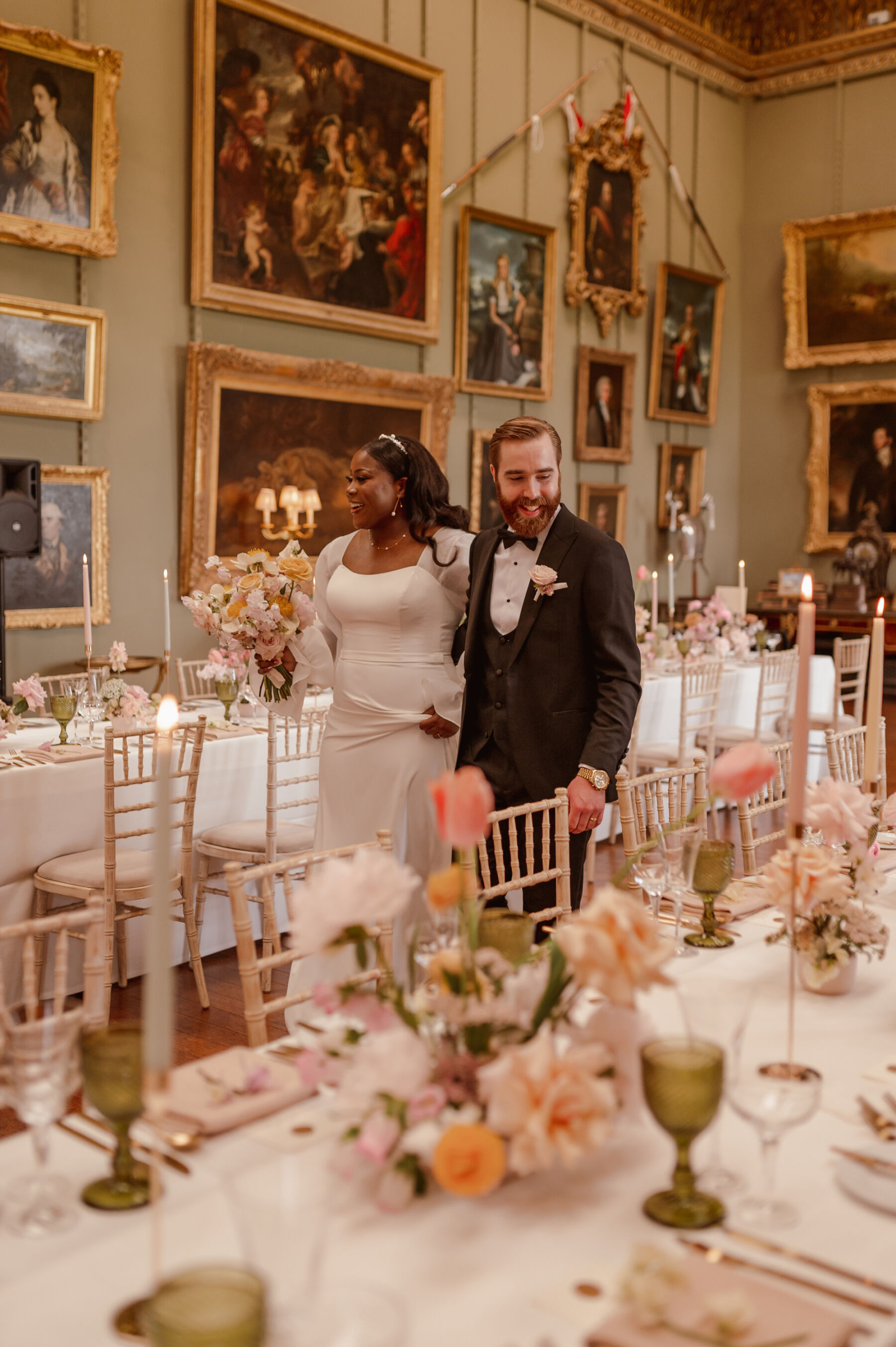
Podcast Transcript
ANNABEL BEEFORTH (HOST)
Welcome to the Love My Dress podcast. I’m your host and founder of Love My Dress, Annabel Beeforth, and I’m so thrilled that you’re here.
This podcast is a tribute to the world of weddings and the people who make them happen. It has been created for anyone planning their wedding, for all wedding business owners and anyone interested in the world of creative business entrepreneurship. Whether you’re deeply involved in the wedding industry on its periphery or just generally curious.
In each episode I’ll be engaging in conversation with inspiring business owners and exploring topics from weddings and business to personal life experiences that have shaped the careers and lives of my guests.
I feel a very strong sense of purpose for humanising the wedding industry and revealing the incredible creative talent that thrives within it. In today’s fast-paced tech-dominated world that we are all navigating, I also feel a profound desire to encourage slower, more meaningful consumption of digital content.
I’m passionate about storytelling and creating spaces where others can share their stories freely and authentically. Stories are the universal currency of our communication. They weave invisible threads that connect us all on a human level that help us to understand better, foster kindness, compassion and empathy. They spark ideas and inspire us to do new things. So storytelling is very much at the heart of this podcast.
If you enjoy listening to this conversation, please take a moment to leave a friendly rating or review. Your support and feedback really means the world and makes such a difference.
And now it’s time to introduce my latest guest. My guest today is Assumpta Vitcu, the gracious and visionary founder of By Ave Creations, a multicultural wedding planning company that creates luxury experiences for couples from diverse backgrounds.
Assumpta ‘s talents extend far beyond her exceptional work in wedding planning, however. She is a writer, a flower enthusiast, a poet, and a talented spoken word artist. She is co-founder of Our Owambe, a blog and podcast created with the goal of redefining Black love and celebration. She is also the creative talent behind Ave Blooms, a side endeavour to deliver beautiful bouquets to clients across London and Essex.
As a Black woman making her mark in the UK wedding industry, Assumpta brings a unique perspective and an essential voice that demands to be heard. Through her unwavering commitment to see a more diverse and inclusive wedding industry, Assumpta is helping to revolutionise the way we all perceive and experience weddings. She proudly and fiercely embraces our identity, using her skills as a compassionate empath to break down barriers and foster an environment where love, joy, and cultural traditions can flourish in harmony.
Beyond her professional accomplishments, Assumpta derives strength and support from her husband, Horia, with whom she shares a home and life in London. As Assumpta prepares for her next career chapter, she has chosen to take several months out to redefine her brand and business, a decision that exemplifies her self-awareness and commitment to driving positive, authentic and permanent change in an industry that still has significant strides to make when it comes to being more diverse and inclusive.
Join me for a thought-provoking and inspiring conversation as we dive into the world and beautiful creative mind of Assumpta Vitcu .
Assumpta, welcome to the Love My Dress podcast.
ASSUMPTA VITCU (GUEST)
Wow, what an introduction. Thank you so much for having me.
ANNABEL BEEFORTH (HOST)
Assumpta, I’d like to start by asking you to share your story of how you ended up doing what you do today. To shed a little light on what you did before you entered the wedding industry, who you were, and was this always a dream of yours? Let’s perhaps take it back to your childhood and learn a little bit about Assumpta Vitcu before she became the amazing wedding planner that she is today.
ASSUMPTA VITCU (GUEST)
Oh, thank you. But yes, I actually have always wanted to be a wedding planner, which sounds really strange because it’s not one of those. I say always, since I was 18. From when I was 5 until I was 15, I actually wanted to be a doctor. A doctor and a writer, those were always the top two. My father is a doctor and I just wanted to be like him.
But I’d always written since I was about 6 years old. I used to write poems and stories. I still have my first poem I ever wrote. It’s written somewhere in my parents’ house. But the reason why that changed when I was 15 is because I hated my chemistry teacher. I did not like her at all. She clearly did not like children. And you need chemistry to study medicine. I was good at biology and physics, but I was so disinterested in chemistry. And English came really naturally to me. As I said, I’d been writing since I was young.
And so I ended up studying law at university because I thought it has words, everyone in my family has a profession, we had to get a professional degree, by we I mean my brother and I, so I chose law and while I was studying for my law degree I knew I wanted to be a planner and where that probably derived from was because I always celebrated my birthday. I always really enjoyed helping my mum or friends with parties and things like that. Even as a teenager, my birthday was always that little bit more extra than anybody else’s. And my mother is a fantastic hostess. So I think that’s probably where I get it from.
My parents would have, my mum doesn’t like to celebrate her birthday personally, but she would always plan these lovely surprise parties or parties for my father.
And, you know, my holy communion was to do all of those little life moments and celebrations and gathering family and friends was how I grew up. So I suppose that’s where it came from. And then when I found out that you could do this as a job, I was like, this is this is what I want to do.
Not immediately, because I thought, I’ll graduate, I’ll work in law, which I did in criminal law, and it was a one day when I can do what I want to do, this is what I will do.
ANNABEL BEEFORTH (HOST)
I just don’t even know where to start, there’s so much to unpack there.
So I’d like to go from criminal law to becoming a planner, but to always know that you were going to be the planner that you always wanted to be, what a fascinating trajectory and you knew from such a young age because you were so creative.
ASSUMPTA VITCU (GUEST)
I had a book when I was at uni that was actually about, at the time I think I’d found it in a shop randomly, it was about destination weddings, but it was, I bought it simply because it had something to do with weddings. It was obviously written in America because it wasn’t such a huge thing back then in the UK that I was aware of anyway, but I kept hold of it and I only told one of my friends at university and so she knew then that that was what I wanted to do.
ANNABEL BEEFORTH (HOST)
Oh my goodness. So what gave you the impetus to make that leap? What was the point at which you said, right, I’m going to do this now?
ASSUMPTA VITCU (GUEST)
Well, I have a really varied work history. So criminal law was a short-lived time, I’d say. It was only for a few years. I also did a master’s in creative and professional writing. And it was really interesting, but I just didn’t like the admin of criminal law, or law, I should say, in general. I liked being in court, but the admin of it all was just too much for me. And especially because you’re not, if you’re not passionate about it, I just thought it wasn’t fair to the clients and also the law firm for me to be there because I’m always acutely aware of my surroundings and what I’m doing and how I take up space or make other people feel. And while I was there, I just thought, I am taking the space of somebody who does want to do this. And so I remember I sat at my desk and I wrote my resignation letter and then booked a ticket to Thailand and flew out on my birthday and went to Thailand for three weeks by myself to kind of find myself and ended up writing about 40,000 words while I was there, which I then used as my master’s. That’s what I handed in as my dissertation eventually.
But from there, I didn’t actually go to wedding planning. I then thought, okay, well, I’ve always wanted to be a writer, let’s try that. Because to me, writing was still more of a known profession than wedding planning was at that point, coming up to my mid-20s. And I thought, you know, I still want my parents to be proud of me. I’m from a West African family and everyone in my family has at least one degree, most have two, some have PhDs.
I was like, okay, right, I feel like they can accept. And this is not necessarily anything they said to me, this is a pressure that I put on myself. So I became a copywriter. And then eventually while I was there, they made me think, this isn’t it either. And after that, I started a beauty business, totally left field. And I did that for about five years until I burnt myself out. And then I thought, I can’t do this. I don’t know what I’m going to do.
But all the while, I knew planning was the thing. But I just it was just not the right time yet. It wasn’t the right time. Every career transition I made, it still wasn’t the time for planning yet.
And then eventually I just thought, if I don’t do this now, when will I do this? And I got engaged and still then I thought, I could start my business now, but maybe I should use my wedding as the testing ground to see if it’s any good. Even though, weirdly enough, I had helped friends plan their weddings. So I knew I could do it, but I guess after our weddings, and I say plural because we had a traditional Nigerian wedding, and then we also had a separate day for like a more Western wedding, one of my aunties came up to me and said, if this isn’t a business, it should be.
And that was the moment I thought, well, okay, this is it. It’s now or never.
ANNABEL BEEFORTH (HOST)
It really sounds to me like you needed to do that. Perhaps you weren’t aware of that at the time, but you were clearly very self-aware. And also, you learned a lot about boundaries, particularly with setting up your beauty business and, you know, experiencing that burnout.
So all of those things you experienced, taking that career trajectory that you did, was setting you up perfectly to become the wedding planner that you are now because they’re all the skills that you need. Perhaps you didn’t realise that at the time.
ASSUMPTA VITCU (GUEST)
I didn’t, but yes, I do think it was a necessary detour or journey. I wouldn’t say it was a detour it was a necessary journey and it helps me in what I do now and also I know how to manage so many different types of personalities and to work with people but I actually honestly feel like I knew that before and I guess maybe we’ll touch on it a bit later but I do feel I am the person I am because of my parents. And even with all of my transitions and changes within the different careers that I had, people were always like, oh, you’re really natural with people. I’m like, at the time, I just used to think it was a thing that everybody could do. But then I realised, no, this is a thing my parents do so, so well. They are community builders. And I have them to thank for a lot of my positive traits.
ANNABEL BEEFORTH (HOST)
It was actually one of the questions I wanted to come to you later on in our chat, but I’d like to invite you to tell me a bit more about your parents because I know having spent time with you, and I should say to our listeners, I met Assumpta for the first time earlier this year at an industry event. And it was, we just had such wonderful conversation, but it was evident to me very quickly what a family woman you are and how much love and inspiration you draw from your parents that feeds into your career and professional space.
So now that you’ve touched on it, I’d like you to tell me a little bit more about them and how important that bond is and how much it does influence you.
ASSUMPTA VITCU (GUEST)
I feel really grateful to have my parents and the relationships that I’ve been able to build with them as a unit, but also individually. It’s strange because my mum would probably tell you that I’m a daddy’s girl and I would probably say it, although I speak to my mother almost every day.
So I actually speak to her more than I speak to my father. She also has her own business, so sometimes I’ll call and ask her advice or it doesn’t even necessarily need to be business advice. She has really good taste, so I will run my ideas past her or to the fat with her. We work in different industries, but she is very knowledgeable and similarly with my dad.
And as I said, I have my love of events and entertaining. I have them to thank for it. So I am really, really grateful. I have a brother as well and they were very intentional people when I was growing up. So I feel that is why I am quite an intentional person now. When we were little, my mum stuck to both of our walls and used to make us recite it every day, even when we got to the point where we could recite it from memory. She’d make us stand there and it said, there’s nothing I can’t do if I try hard enough. And if I try and don’t succeed, I will try and try again.
I do feel fear all the time. I actually have anxiety. I suffer with anxiety, but I feel the fear and do things anyway. But that I know also comes from the privilege of having a safety net. And I don’t even necessarily mean my husband. He’s an amazing man and I’m really grateful for him. But I was always raised to try. And I remember at some point, I think probably deep down I knew, but then one time my dad actually articulated it to me. He told me, because I was umming and ahhing about doing something, and he said, what’s the worst that can happen? So long as your mama and I are still alive, you can always come home.
So when you have that, and I have become acutely aware that it’s not everybody does have that, so, but when you have that behind you, why wouldn’t you try?
ANNABEL BEEFORTH (HOST)
Yeah, absolutely.
It touched me listening to that. I think any kind of loving message like that, that parents can be sharing with you, particularly during your formative years, that you carry with you then for the rest of your life is something really, really very special indeed.
ASSUMPTA VITCU (GUEST)
You;re welcome.
ANNABEL BEEFORTH (HOST)
I’m going to come back to family a little bit later on in the conversation, but thank you for sharing that.
I’d like to go back now to Ave Creations and the point at which you created this business. Was it one of those situations where a friend asked you to design a wedding or did you throw yourself into a business and go seeking that opportunity? How did it happen?
ASSUMPTA VITCU (GUEST)
No, I had to throw myself into it and go seeking because despite the fact that at the point that I had started my business, I had been to countless weddings. I am Nigerian, I’m West African, and my parents are popular people, so as a family we were always being invited to weddings and events. And this is, I don’t mean this disrespectfully to those events, many of them were lovely, but there was always an underlying sense of chaos that I just felt didn’t need to be like that.
So that’s another driver. just wanted to do things better. And people were happy to just be in the room and to accept the chaos because it’s what always happened. And I thought, well, no, it doesn’t always need to happen because when my parents have events, they do go and they do work to time. They are considerate of either your dietary requirements or your time, which is a very big thing for them. I’m not sure if you’re familiar with the stereotype, but, like, black events and brown events, like Asian events as well, supposedly never start on time. By and large, that’s what I found. But my parents were always the people that would get there at the time you told them.
So eventually their friends, they would just say to their friends, okay, is this the real time or is this the, like, oh, we’re just telling people this time because tell me the real time, I will be there at this time.
They have arrived at weddings where the decorator was still, was only just starting. And I remember them coming home from another wedding where they were sat in the church waiting and the priest got so annoyed that he eventually said, like, ushered everybody out of the church.
My parents were the first ones there. And then they waited until the couple came so that they could let them know, your priest has shut the church and he is not going to conduct your ceremony today. So they had to go to their reception not being married.
ANNABEL BEEFORTH (HOST)
Oh, goodness me.
ASSUMPTA VITCU (GUEST)
Yeah, I know. You know, things like that just made me think, this is insanity and it just doesn’t need to be like this. Don’t get me wrong, some people enjoy that chaos. I personally don’t.
And I want it, well, with my events, with Ave Creations, I want the guest experience to be as beautiful as I know the pictures and video will be. Because pictures and videos, they tell the story of the day and can do, especially if you hire wonderful professionals, they can make things look really dreamy, but sometimes the guest experience on the day is not as dreamy and I want the two to match. That’s one of my driving forces.
ANNABEL BEEFORTH (HOST)
I think that’s probably what stands you apart, isn’t it? Because you want the whole experience to be authentic in that way, for the photographs to truly represent what actually happened, and for that to have been an absolutely amazing, seamlessly organised, brilliant experience for everybody.
ASSUMPTA VITCU (GUEST)
Yeah, unfortunately, I mean, the nature of weddings, you know things are going to go wrong because there are so many moving parts, however the feedback that I continuously get from other suppliers and also from my couples is that I’m a really calming experience on the day.
But I filter from what I would love to experience. I would hate for somebody to be, like for me to see that everybody around me is stressed. The way that I am when you see me is the way that I am when I’m working weddings. I’m always smiling, I’m always really calm. And that’s even when I am worried or, you know, it’s kind of like a swan energy, I’m paddling away underneath. But on the surface, I appear really calm because nothing is going to be solved with me flapping around and screaming at people. It’s just not.
And also, I was raised to be kind, I have witnessed people not being kind and it just shuts the other person down or it makes, puts them on edge. Whereas if you’re kind to somebody, even if they’ve done something wrong, if you come with understanding, then we get to the end goal together much faster, much more seamlessly. And then it means that everybody else can continue with the day.
I’ve had some shocking experiences in weddings in that for one of my weddings, the staff didn’t turn up. And I ended up pretty much doing most things myself. And thankfully, my assistant that I had brought, you know, the universe was smiling on me that day because the person who was supposed to come with me had cancelled, but the person I brought had bar experience. And they had a similar attitude to me, so they ran the bar on their own all night.
My couple’s friends and family kept coming up to me, they were like, you have gone above and beyond what any planner should do. Honestly, I got home and cried because it was just so exhausting. But I couldn’t leave them because I had messaged one of my planner friends and they just said if it was me, I’d go home. I said, but I can’t because this is not their fault. And while it is beyond the remit of what I’m supposed to do, I just couldn’t imagine the alternative if I wasn’t here.
And they ended up having the best time. And I just want to see people have a good time. That is the whole reason why Ave Creations was created. It was for people to celebrate their life’s milestones beautifully, unforgettably, and also inclusively. That’s what I’m really passionate about.
ANNABEL BEEFORTH (HOST)
It says a lot to me about your level of integrity that you would do something like that without thinking twice about it, just rolling your sleeves up and getting on with it because you know that your clients need the help. That was a real SOS moment, wasn’t it? And for you, it’s like, right, I’m here, let’s get on with it. It says a lot.
So you talked a little bit there about the stereotype of black and brown events, you know, starting late. I wasn’t aware of that, actually, but I do know that typically the events are much larger than white Western weddings.
Can you tell me some of the unique challenges that might arise from planning multicultural weddings for you? How do you navigate the diverse traditions and customs involved in multicultural weddings?
ASSUMPTA VITCU (GUEST)
There are a lot of things to consider and I think part of the reason why it doesn’t seem foreign to me is apart from the fact that before I got married I was, I’ve always had really diverse friendship groups, I’ve always been in spaces where I wasn’t, my ethnicity wasn’t predominant.
I had a multicultural wedding and I was very aware of the nuances involved and bizarrely when I started my wedding I did not call myself a multicultural wedding planner, it was a more seasoned planner that said to me, are you aware that you have a niche, this is your niche, and she was the one that said to me, if you’re not specific, I don’t know of any other planner saying this right now, that’s not necessarily in the Afro, specifically in the Afro-Caribbean community. And even then, they didn’t necessarily title themselves in that way.
So she, she was the one that said to me, you need to be clear about this. If, do you enjoy working with diverse cultures? I said, I do, and particularly couples who are not from the same place.
Fusing cultures is incredibly rewarding but can be challenging, especially because in multicultural weddings, family have more of a say than I found in Western kind of white weddings. The couple gets to choose what they want, even when a lot of the money isn’t necessarily coming from them. Whereas the opposite happens, particularly in African weddings, even if the couple are paying mostly, their parents still have a very strong say on what happens, which can be challenging. It means having to navigate personalities and also be respectful and sometimes talking my clients down because I am aware of the cultural nuances. I think about the long-lasting effects of the way they will speak to their parents in that moment. They’re always going to be your parents. You want them in your lives, hopefully, after your wedding.
So sometimes I actually find solutions that will try and make both parties happy. So that might mean, okay, we’re not going to include the five different cultural elements we need from your parents’ tradition to be represented in this wedding, because you are not marrying somebody from the same place as you. How about we pick the top two, and then we can weave that in in this way that makes my couple happy, and then their parents will be happy, and then everybody can enjoy themselves on the day. It’s a lot of juggling, reconfiguring and compromising.
ANNABEL BEEFORTH (HOST)
I think it must take such skill and insight to sensitively be able to bring those different elements from all those many different diverse and incredible cultures together in a way that makes the couple really happy. And as you say, whatever level the parents are involved in, whatever say they have, I think it must take such a skill to do that. I mean, I wouldn’t know where to start. So, you know, I’m saying hats off to you. I think it’s incredible that people can do that.
And what I’d like to ask you now is, in your experience, what are the key ingredients and important elements that contribute to that really authentic experience that you talk about? What makes a wedding authentic for you from the couple’s experience and their perspective? How do you ensure that those elements are present in the weddings that you plan and organise?
ASSUMPTA VITCU (GUEST)
I try to approach planning from a multi-sensory point of view. So I think about the five senses. What are people going to touch, hear, taste, all of the things, smell. Your senses are such a powerful memory-making tool as well.
And also, in our various cultures, there are different sounds, there are different tastes, there are different textures that will remind, whether it’s the couples or their families, of home, or whatever is home to them.
Sometimes that also means making new traditions for them. Some of them may not particularly resonate that strongly with their culture, their family’s culture. So when I say that I try to infuse cultural elements into their weddings, I speak to the couples first. It’s like, how much of this wedding do you want to represent you culturally? Because the UK and Britain is also a culture you met here, because most of my weddings happen in the UK, we can simply focus on that. Or we don’t have to include where you’re from or where your family is from, if you were born here and your family was born elsewhere.
But I think just keeping those five senses at the forefront, and then weaving in traditions that resonate with them, that they want to carry forward in their marital life without offending either the parents or their culture as a wider whole. That’s what I focus on and I think that’s what makes it most successful.
ANNABEL BEEFORTH (HOST)
I think there can be confusion and misperceptions sometimes surrounding the role of wedding planners. There’s often an assumption that they’re exclusively just for the wealthy and I think this is a bit of a two-pronged question as well that sort of seeps into what a luxury wedding is.
Can you talk to me a little bit about the role of wedding planners? Are they reserved exclusively for the wealthy? And what for you defines what a luxury wedding actually is? What does luxury mean to you?
ASSUMPTA VITCU (GUEST)
A wedding planner isn’t exclusively for the wealthy. However, it depends on what you are hiring that wedding planner to do. Because some wedding planners will only work with to fully plan a wedding. Some will work and will partially plan, that’s if you’ve perhaps found your venue and some of your suppliers already, they will step in and give you some more recommendations and help you along your way.
And some planners will work with you, you know, in a wedding management capacity where they get in touch, well, they start working on your wedding a few weeks before you hand over all of the plans that you’ve made, then they can troubleshoot and pull it all together at the last moment.
If you’re not planning with a massive budget, then more often than not, coordination or event wedding management in the last two months to four weeks, that might be the service that is most applicable to you. So there are ways for you to work with a professional wedding planner without taking out a loan.
It’s not exclusively for the wealthy but the something that I guess I can talk about here, albeit rather controversially, people underestimate how much you should be paying a wedding planner and I’ve had people try to haggle me down and it’s confusing to me because a lot of these people, well I say a lot, a couple of the people that have done this, you work high-powered jobs and you’re quite professional. So it’s interesting to me that you should think that you would pay a wedding planner when you break it down less than minimum wage.
There are a lot hours, lots and lots of hours that go into planning, especially the kind of planning that I do because I really really think about what I’m doing, it’s just the way I live my life. I probably spend more time than I should thinking, planning, working.
If you are going to hire a planner to do a full plan, it’s I think unreasonable to expect to only pay like £2,000 for that. That’s not to say you can’t find a planner who will do that. You know, everybody has to start somewhere and oftentimes when people are new in the industry they want to charge a low price just to get some work in.
Wedding suppliers need to be a bit more, not necessarily forthcoming with pricing, but also I think just we need to educate better on what we do. And that’s not me saying we have to convince anyone. The people who have hired me in the past, I haven’t had to convince them to hire me.
They just, we have a call, we understand if we are, if we have synergy and if they think that I am the best person for them, but also if I think I’m the best person for them. Because sometimes I will say no, even when a couple wants to book me, if I can see that I am not the best planner for them. But I think educating couples is super important. The word luxury gets thrown around all the time. And while a planner might seem like a luxury, and possibly is, there, as I said before, there are ways to work with professionals and people that produce quality work without you having to spend the full amount.
Also, another thing that you can do, actually, is book hours in with a planner. Some planners offer SOS chats. That’s what I used to call them, actually. If you needed help, you can afford a full service. But you need a professional eye in the midst of your planning. You’re drowning. I can have an hours chat with you and put you back on track.
So some people offer that service as well. It just, I don’t necessarily do it so much now because of how busy I am, but there are people who can do that.
A hundred percent, you should always have a coordinator at your wedding. And a wedding planner slash wedding coordinator is not the same thing as a venue coordinator.
ANNABEL BEEFORTH (HOST)
Tell me the difference, because I think that this is part of the education that you were talking about just now, you know, and couples do need education because there is so much misperception out there.
So tell me a little bit now about the difference between a venue coordinator and a wedding coordinator.
ASSUMPTA VITCU (GUEST)
A wedding coordinator and a venue coordinator, they work hand in hand, but they are two different things.
So a venue coordinator, their focus and their allegiance is to the venue. They will run through the details of your wedding, obviously, and liaise with your suppliers, but they will more likely, more often than not, open the building for you, direct people in the right direction or point people in the right direction, rather, and then leave you to it.
A wedding coordinator or a wedding planner will be there from start to finish or at least until the party gets started and will make sure that things are running on time, will keep people on time, will also be mindful of the building and if anything is going wrong they will be there to troubleshoot for you. Their allegiance is to you and your guests. The focus is you and not the venue, whereas the venue coordinator’s focus is the venue.
And that’s not to say that they aren’t concerned about their couples, they 100% are, but you have a dedicated person or team that is there on that day for you and your friends and family, and that is the fundamental difference. And also, more often than not, a wedding coordinator, they will be the ones that you would hand over all of your details to. And even when it comes to styling or just even direct, if you hire a stylist, directing the stylist on the day and just making sure everything is as you have discussed, that’s their job.
ANNABEL BEEFORTH (HOST)
Yeah, it’s fascinating. So I think there is such a massive misperception or misunderstanding of how the role works out there.
And also, it’s so important as you mentioned to be educating couples about this because I think and I phrase that question especially as I did early on because I wanted to be a bit provocative but I do think that there’s still a perception that wedding planners, stylists, coordinators are for the elite and wealthy and they’re not.
ASSUMPTA VITCU (GUEST)
Yeah I’m really big on education I’m a lifelong student and at some point I will try and make space to educate my future couples, potential couples, or just anybody really who cares to know about the nuances of the wedding industry, because I think it’s not fair to keep complaining. Like couples complain about us and, you know, we can, well, some supplies complain about couples, but that’s because there’s just been a breakdown in communication. People don’t know what they don’t know. And at least then they can make more informed decisions or they’ll be aware of things that they just had no clue about.
People didn’t know, most people don’t know that there’s a difference between their venue coordinator and a wedding planner or a wedding coordinator. So they, if the venue offers one, they’ll just say, okay, this is great, I don’t need to have anybody else. And that would probably work quite well if you are having a standard English wedding. If you are having a multicultural wedding, I wouldn’t even recommend it at all. Take the services, don’t get me wrong, work with the venue coordinator, but you also need an external wedding coordinator or planner, in my opinion, to be able to navigate the additional things that come with planning a multicultural celebration.
And I realise I didn’t answer your luxury question, but I can do. So, luxury to me is just a very high quality and high level of service. I don’t necessarily think it’s not accessible, but it shouldn’t be something you can just, like, pick up off a shelf. As I said earlier, people use the word luxury a lot. And personally to me, it is not a luxury experience if you’re just like shaking it off a shelf and putting it on a table. There’s no thought or consideration or… it’s not specific to the couple. I mean, this is in the context of the wedding industry and providing a service.
In the world of weddings, actually taking into consideration the people that you are dealing with, and by the people I mean your clients and your couples, and not just a cookie cutter experience. Cookie cutter experiences aren’t luxury, in my opinion. Other people may differ, but if I am providing you a luxury service, that needs to be across the board. So I don’t take on many weddings a year because if one of my clients needs me, I want to be accessible. And that’s not to say I’m on call 24-7 because boundaries. But I think to be able to provide the kind of service that I would like to receive, I need to have a certain amount of space in my life, in my diary, to be able to afford that to all of my couples. If they are paying me a premium, then they need to, the experience needs to match.
ANNABEL BEEFORTH (HOST)
Yeah, I understand. It’s a definition that makes sense to me. And I think that, again, luxury can be misinterpreted so often because it’s often so attached to a monetary value. But more often it’s about the level of personal consideration. And, you know, just making something really uniquely special and very highly considered to that couple. That’s what makes it luxury.
But you know, your response kind of segues me nicely into an area that’s a little bit controversial, I think, for planners, stylists out there working in the wedding industry right now. And that is the issue of copying design. And I know we spoke very briefly off air just before we started to record. And you said you’d be happy to talk about this, because I know it’s a conversation that’s prevalent right now. It’s happening right now across the wedding world.
But at what point is that line crossed between being inspired by something, a design and copying a design? So I’m imagining that a client might come to you with a set of images from another planner or stylist and say, I want that, I want exactly that. How would you respond to that client?
ASSUMPTA VITCU (GUEST)
With love, first of all, as I said before, lead with love and kindness, but I would let them know that we can certainly take inspiration from it, but it will not look exactly like that. And if they were to ask me why, I would explain that that is somebody else’s wedding. This is not your wedding. Getting, this is part of why I get to know my clients, I try to, and physically spend time with them if they’re in the same country as me, like we’ll have some of our meetings in person. Because we’re not, again, giving a cookie cutter experience, which I’ll explain to them. You do not want to take, remove that person’s face from this wedding and let’s just stick yours in. There are choices that have been made in that design that reflect their personality and their love story. So how can we do that with your love story and your personality? And often, like, I’ve never been met with resistance once I’ve said that to somebody.
ANNABEL BEEFORTH (HOST)
I think that’s a really fascinating response. And for me, that provides so much clarity around the role of the professional stylist and planner and the responsibility it is of theirs to explain that and again to educate the couple because otherwise it can feel like such a grey area can’t it and I’ve not really been sure where I’ve sat with it all up to now I’m like well sure there’s obviously an issue with a design being copied directly but if the client is seeing all this inspiration on Instagram where do you draw that line and I think you’ve just basically described the perfect way of dealing with it it’s, it’s a responsibility and it’s an educational aspect, isn’t it? And it’s your role, I guess, to help the client understand that you can certainly take inspiration from that image and from those ideas, but you need to help them understand that something unique to them and very special and considered to them has to be created as a result of that.
ASSUMPTA VITCU (GUEST)
Yes, the onus is on us to not only protect our clients, but also our colleagues. The client is my priority, but so are the people that I work with.
On a wedding day, while I am there for the clients and, you know, the couples rather, and their friends and family, I’m also looking after the supplies that are there. I will always bring bottles of water so that in case we’re in the middle of nowhere and, you know, the drinks we’ve ordered are like specifically, because sometimes you don’t know what bars are going to be like, they’re only wanting to give them to guests. At the very least, I should be able to hydrate. And I will ask suppliers, especially photographers and videographers who are just always on the go, have you had anything to drink? Can I get you some water? Make sure they’re taking breaks. I make sure that they’re fed because I treat them, even though they’re not paying me, I treat them as my clients too.
I think we need to look after each other and copying somebody else’s style or design, especially kind of, you can take inspiration from it, nothing is new under the sun, but I think if you were to do it in the exact same colours, exact same placement, even go to the same venue, it’s a little bit crazy.
ANNABEL BEEFORTH (HOST)
And the same suppliers as well, I guess, using the same suppliers is a bit of a red flag.
ASSUMPTA VITCU (GUEST)
Yeah, that’s, that’s just, I mean, I was going to say a step too far. We shouldn’t really have even gotten there.
I think being able to advise your clients and I think also don’t be afraid to give your opinion. They’ve come to you, they’re working with you because they value your opinion. So I think being honest and just trying to carve your own niche or just create your own ideas. I know how difficult that can be. That comes with experience. You need time. If it’s not something that comes innately to you, if you are not somebody that gets ideas all the time, yes, you can look at other people’s work for inspiration and consume a lot of work, but you also actually need to do things to be able to find your own style. And if you are taking inspiration from other people, I would just really shy away from copying it word for word. You wouldn’t want somebody to do that to you.
So the other thing, well, speaking of my parents, I was raised with the golden rule, which is do unto others as you would have them do unto you. So in the moments where I feel a bit conflicted or if I’m trying to make a decision, I have to think, would I like it if somebody did this to me? If the answer is no, then we’re not doing it.
ANNABEL BEEFORTH (HOST)
I think that’s a perfect response and a really kind and considered way of looking at it as well.
So moving on from that rather controversial issue, Assumpta, I would love to ask you to tell me about your own wedding day experience. I’ve seen the photographs and it looks so amazing. Tell me all about it, please.
ASSUMPTA VITCU (GUEST)
I’d love to.
Well, let me start by saying I had what somebody’s dream weddings, but they weren’t mine. I actually wrote a blog post about it on Our Owambe.
So I had two separate weddings, a traditional Nigerian wedding, and then also like a Western wedding, and they were both beautiful. All of the guests had the best time, they loved it, but they weren’t my dream. And you’ve heard I’m super close to my parents, and I love them dearly, but a lot of our wedding choices were made with them in mind, and like my family and all those things.
And I mean, first things first, I wouldn’t have had weddings the size that I did. I’d always wanted a small wedding. I’d been saying that to my parents for years, even before I met my husband. I was single, but still telling them, when I get married, I want this to be small. Because typically African and Asian weddings are not small. 150 to 200 people is small for us, and I just didn’t get that. Our traditional Nigerian wedding was 450 people. Our Western wedding was 350 for a sit-down meal.
When I think about it now, it’s still kind of crazy to me, but also it’s not, because that is the norm in my community. It’s not abnormal, but it meant that I didn’t have certain things that I would’ve wanted. Like, I really wanted a band. And it just wasn’t feasible because of the level of service that not only I wanted, but the quality and service that my parents always, the standard that they always keep to.
So, certain things had to be axed. And it made me sad, but like I said, we had a really good time in the end. It was, it came with its stresses, but it was really beautiful. It just wasn’t my dream wedding.
ANNABEL BEEFORTH (HOST)
That’s so interesting to hear, because, and it must be a cultural thing, as you say, because as somebody who’s clearly very self-aware and who loves her parents very, very deeply and knows how to set boundaries, but you still had the wedding that you didn’t really want to have.
And one of the questions I’ve just jotted down on my paper here is, have you considered a vow renewal? Will you ever do anything that will be smaller, more intimate and maybe more reflective of you?
ASSUMPTA VITCU (GUEST)
No, almost immediately after our wedding, I was like, okay, well, you know, it’s fine, vow renewal. It’s like, oh yeah, in a few years’ time, I’ll just do this over again the way I want to. With the cost of living crisis, who knows when that will be.
ANNABEL BEEFORTH (HOST)
Indeed.
ASSUMPTA VITCU (GUEST)
Yeah, I think even towards the end of the planning, before the weddings had even happened, I just knew I’d have a do-over. Fortunately, unfortunately, I am the only daughter of a popular Nigerian couple, and my parents have literally been invited to hundreds of weddings and attended most of them. So that was why I think in the back of my mind I knew they would probably want this to be reciprocated. And by the hundreds of weddings it was like their friends’ children’s weddings they were going to.
So I just thought, I really don’t want this for mine. But the funny thing is, even with having invited those 450 people to our traditional wedding, there were still people who called my parents and were mad at them for not being invited. Bear in mind, that 450 people was my husband’s family at the traditional wedding.
Most of them were, like, people my parents knew, and there were still so many people that were mad at them that they weren’t there. People flew in from all over the world for our wedding. It was wild. And I am really grateful, but equally it was quite overwhelming.
ANNABEL BEEFORTH (HOST)
I just wonder how many of the brides might be feeling the same thing as you feel, but for cultural purposes those weddings have to go ahead. And on the one hand, there are amazing experiences. Like, I actually feel like goose bumps excited here, imagining all those people flying in and the party vibe that must have happened on the night of your wedding must have been absolutely, both your weddings must have been incredible. But…
ASSUMPTA VITCU (GUEST)
It’s probably one of, our Western wedding is probably one of the best parties I’ve ever been to. I had the best time. It was so, so good. And it was one of those, because I see it, obviously now I’m working at weddings and having attended lots of weddings, you know, people get tired and they start kind of leaving towards the end of the wedding. It was cross-generational and people of different age ranges were on our dance floor until the very end.
ANNABEL BEEFORTH (HOST)
They’re the best ones.
ASSUMPTA VITCU (GUEST)
Shoes were off, they were having the greatest time, it shows in the pictures. Yeah and everybody, the DJ was on fire. Yeah. I actually allowed, or we allowed my dad to pick our DJs. My dad is really into music and he sorted both DJs out for our two weddings and they were just so good.
ANNABEL BEEFORTH (HOST)
I think if the DJ understands how to get different generations on the dance floor, you’re sorted. There’s nothing nicer than seeing different age ranges and everybody just piling in and having a great time. I think that’s just amazing.
I want to, if you don’t mind, move into conversation around your experience of being a black woman in the wedding industry. And obviously, you’ve planned lots of beautiful weddings that aren’t yours, and you’ve planned your own.
Did you come across any experiences or have, you know, have any of this planning experience shed light on observations about the lack of diversity and inclusivity within the wedding industry for you?
ASSUMPTA VITCU (GUEST)
Before I go on to my experience as a planner in the wedding industry, I’ll share a little bit of my experience as a bride, because it wasn’t that great, to be honest. I mean, it was lovely. But it was tinged with these small experiences that made me think, this is horrendous, that actually resulted in me bringing my husband to certain appointments with me to see what would happen. And they treated me much better when his white face was there than when I would just be on my own.
So there were experiences I had where I would automatically be offered, like, the cheapest thing in their offering. And I’m just like, I don’t know why you’ve made that assumption. We got engaged at the end of January and then I went to a wedding fair on my own. And I quite like doing things on my own, like shopping. I just don’t want other opinions. Because I’m still a recovering people pleaser and I would want, I’d probably be like, oh, maybe I should take their opinion on board. But I just wanted to go with a clear head and see what was out there.
And one of my first, one of the first stalls I happened upon was jewellery. And so I thought, oh, let me have a look at a wedding band. And when I arrived, there were two ladies that were being dealt with. And I stood there, about five minutes had passed, and the sales assistant, a man, hadn’t even acknowledged my presence at all. You know, normally you’d kind of nod or smile and say, oh, you know, when I’m finished with this person, I will deal with you. About 10 minutes passed, nothing happened. And then a white woman came over. And then he said, oh, just a moment, I’ll be right with you.
I walked away, and I called my mom. And I was shaking and really just so anxious. And she was just like, what do you mean? Go back. My mum and I have, we’re very similar, but we’re also quite different. She’s a lot more forthright than I am, quietly so, but she will speak up and I’m just like, no, I’m just going to walk away and feel sad.
And so she said, no, go back and tell them. And so I mustered up the courage. I went back and then another of the sales associates were available. And she was a woman. And I said to her, she was like, oh, how can I help? I said, oh, I’m trying to look for a wedding band. And so, but I said, but I’ve come, I was here a moment ago, I came back because your colleague over there completely ignored me. And she said, what do you mean? I said, no, he just disregarded my existence completely. But then when another lady came over, he spoke to her and she said, well, he owns the company. And I was like, oh, OK, fine.
And she looked at my engagement ring. She was like, oh, it’s really beautiful. And she said, oh, what’s the budget for your wedding band? And I said, I don’t have one. At which point, you know, she got really excited because I didn’t at the time. We hadn’t set one. It’s not to say that I could have spent millions on it, but it wasn’t going to be like low and I really didn’t have a budget. So she then started trying to be nice to me and I just thought I can’t, I could never give any money to a company that behaves like this. And then I’ve just told you what happened and granted, she didn’t really know how to address it.
But I found my wedding planning experience to be interesting because because certain suppliers treated me, I don’t, I wouldn’t even say it was unkindly, they just had preconceived notions, either until I opened my mouth, or until they maybe asked about the budget and then it was like, oh, wait, let me be nicer to her. It kind of marred the experience a little bit.
But then I chose really diverse suppliers across the board. So our photographer was Greek, and our videographer was from somewhere else. And, you know, our florist was English for our Western wedding. It was just like a whole range. And then I ended up not even going to Bespoke Group with my wedding band. I, um, Horia got me a Cartier wedding band in the end. But I just thought it could have been different.
Similarly with dress buying, when I went shopping. At the time, my husband worked, well, for then fiancé, he worked in Canary Wharf, he worked in the city. And there was a boutique around there that was beautiful. And I was trying to, one day I thought, oh, I’m just going to go there before I met him for dinner or something, or lunch, I couldn’t remember what it was. And it was all, there was glass everywhere. And so I was stood there trying to work out where the door was, and the two women just stood there staring at me and didn’t assist. They just stood there, kind of, like, giving me this really weird look.
And so I thought, you know what, I’m not gonna go into this shop. And then eventually I ended up going down the bespoke route. The woman who made my wedding dress also made one of my traditional outfits for my traditional wedding. I actually had the material. I flew the material over to Nigeria when my mum and I went there as part of the wedding shopping and stuff and left it there. But because I hadn’t enjoyed the experience with the designer, I had them bring it back, and I gave it to her instead. Subsequently, she has made dresses for some of my brides. She’s just the most incredible woman. And again, I didn’t have a budget for my dress. My mum gifted it to me.
Well, eventually we did set a budget, but, you know, I could have given that money to a shop, but then because they weren’t, they weren’t kind, you know, I’m so happy that I ended up going the Bespoke route and I got to see how it was created. And I have all the pictures from it.
So I basically said yes to a sketch. And it was just fascinating and fabulous to see it all come together and I really appreciate appreciated that and her level of service is the reason why when my brides have similar experiences or aren’t sure I will send them to her.
ANNABEL BEEFORTH (HOST)
Do you want to name check your designer?
ASSUMPTA VITCU (GUEST)
Oh I’d love to she’s called Fran Rios but I wasn’t sure if I was allowed to.
ANNABEL BEEFORTH (HOST)
Yes of course, I’m very well aware of Fran. I’m very well aware she’s incredibly talented. Her designs are carried in Blackburn Bridal Boutique.
ASSUMPTA VITCU (GUEST)
Yes she’s amazing one of my brides this year that she made her wedding dress, she just had the best time with Fran. The best and her dress was just so beautiful. It was the most stunning wedding overall, but yeah, Fran is an angel. She’s just so kind and takes the time to listen and she will give you her opinion, kindly. Because even if you have a specific thing in your mind, she will say to you, you. How about this? This would suit you.
She really understands different body types and the different silhouettes and what will suit you. And she delivers that information with love and will make you feel amazing.
ANNABEL BEEFORTH (HOST)
And I think that that’s the very essence of the problem that you’ve just shared with me. And I’m so, so sorry that you had that experience planning your wedding. It breaks my heart. It really does. And I hope that as many suppliers as possible are going to listen to this podcast, I’m going to make them listen to it. Because it’s simply not acceptable. And I think it shouldn’t matter where you come from, what you look like, who you are, every single experience, every single bride, every single groom, every single couple who’s planning a wedding should receive that same experience of intentional love and kindness and the supplier wanting you to walk away from that experience feeling like you’ve been really cared for and that they really gave a damn, you know?
It really saddens me to hear that you’ve had that experience.
When was your wedding? Can I ask when you got married?
ASSUMPTA VITCU (GUEST)
Yeah, in 2017. I love to, sometimes I speak to particularly black brides and they say they don’t see themselves in mainstream media etc etc, which is true. One of my friends when we first got engaged bought me wedding magazines as a gift. And I flicked through three, the three magazines she got me. I was super excited. And then I realised there wasn’t a black person in all three. And then I handed them to Horia, and I sort of spot the black person. And he was like, nope, I found one. And that was at the back of the magazine, in an advert for a destination wedding and it was actually the officiant, they were teeny tiny and I was just like, oh you’re just being facetious now.
But that’s actually not the point that I was trying to share. I did not feel like I couldn’t see myself in wedding media, but that’s not, I didn’t realise that until that moment. I had always seen myself in wedding media because I’m Nigerian, and things like Bella Niger, like apart from, well, it’s one of the biggest wedding platforms in Africa, or I think it is the biggest. Bella Niger was familiar to me. Before it became an actual platform, I followed it on Facebook. It started as a Facebook group or something like that, or, you know, their blog. I was already aware of things like that. And also, I’m Nigerian, and like I said, I’ve been to so many weddings, I did see myself.
What became very apparent to me was I didn’t see us. My husband is white, I never saw interracial couples anywhere. So, and it had never occurred to me that I would marry somebody that didn’t look like me, despite the fact that I had grown up predominantly in white spaces. So when it occurred, I was now like, I just assumed maybe it was my hubris. I just thought, okay, well, there will always be space for me. And then I was like, actually, no, this isn’t really a thing, which is part of why I wanted to start Our Owambe, because the other thing about some of the platforms that I had grown up seeing is that they have a very specific aesthetic, and aesthetic and they are African weddings predominantly.
I do not live in Africa, I live in the UK. So the kind of aesthetic that I would have wanted and, you know, the couples that I tend to attract now, they rarely see themselves and the type of weddings that they want to have. It’s usually white models or actually white couples in them. So sometimes it feels a bit closed off to you, like you can’t have that.
ANNABEL BEEFORTH (HOST)
That makes sense. I’ve got to come back to that question about Our Owambe, because you’ve just lined that beautifully to talk about why you set it up.
But I just want to park that thought for a little moment, because you shared with me a few moments ago that your wedding was in 2017. And with some sensitivity here, I’d like to take us to the year 2020, when in June, the tragic events surrounding George Floyd sparked a significant response on a global scale to the Black Lives Matter movement. Are you comfortable sharing your observations of how the wedding industry responded at that time?
What you think it could and indeed should be doing now and if things have improved since your experience in 2017?
ASSUMPTA VITCU (GUEST)
Yeah, I don’t mind sharing but that is a question that gets asked to Black people a lot, but not really to white people. I understand why it’s asked of us, but around that time, I gained a bunch of followers, as did a number of my black wedding supplier friends. Some people were annoyed and alarmed by it, other people kind of just capitalised on it and ran with it. But the problem now is that those people that followed you just because of that incident aren’t real followers. They don’t actually care about you and your work, so now their engagement is terrible.
But there was a lot of performative behavior, there still is, and at the time I remember the people that would follow me and then start DMing me, telling me how sorry they were. I found it really weird, to be honest, because I didn’t know them. And the other thing that I found really strange was people I didn’t know asking me how they could be better and how they could do better. And one person even went as far as to say, could I please have a look at their website and see how, like, they could be more inclusive and they could attract more Black people.
And at a point, I did have to wonder why this was happening to me specifically, but I think to a degree I am also acutely aware that I am a palatable black face. And by that I mean I grew up predominantly in white spaces for a very long time. I was many of my friends token black friend. I didn’t realise how many microaggressions I endured and swallowed and skimmed over until I found out the word microaggressions. I was like, oh, that’s what that was. But because it was my normal, it didn’t really occur to me.
So in that time, again, I led with grace and kindness and I tried to respond, but I would let people know it’s not my job to do this work. I would point them in the direction of amazing people like Nova, who was running workshops and, you know, training to help white people who really wanted to do a lot of unlearning.
To be honest, the wedding industry, I think, still has a long way to go, but I don’t focus on it so much specifically because I just do what I can to effect change in my community and hope that as many people as possible can find me or that I can be a safe space for them.
I would love to say I’ll try my best to change the wedding industry, but it’s such a huge juggernaut and it’s such a huge beast that I’m like, I’m going to do what I can in my community. And if people want to give me a platform, as you are doing right now, which I very much appreciate to be able to spread the other side of how sometimes it might feel, then then I will happily share my opinion. But it can be emotionally draining and also a bit triggering to have these conversations or do this work.
But also, there are so many subsets of the wedding industry that in the bubbles, this isn’t a problem. So by and large in the Afro-Caribbean wedding community, wedding industry, the people who tend to just do Afro-Caribbean weddings, there isn’t a problem per se, because they create their own media, they work with suppliers who are all Afro-Caribbean, brides and grooms and couples that are just getting married know who to go to when they want certain things.
The reason why it became very apparent to me is, number one, because of my taste and what I like. And number two, quality, and certain things that I like. And then the third thing was, I was marrying a white person. So again, what I had grown up seeing and what I was used to seeing, what I always thought would be my reality, it suddenly took a shift. I now needed to look at it in a different way.
And then when I went to the other side, I’m like, no, there’s just all white people here. Where is the bit in the middle that fuses cultures, religions, all the things, you know? And so when you don’t see it, you try to create it. And that’s not to say that it isn’t there. It was there, because there were blogs that existed, like yours, that did occasionally share something other than, you know, what was in the Western media, but it just wasn’t enough.
ANNABEL BEEFORTH (HOST)
I feel very aware of my role and responsibility in needing to share more diverse and culturally diverse content. And I often find myself, it feels like an excuse, which shames me really, but I think it’s not easy, because if I try and actively approach the suppliers, so one of the one of the issues, for example, that I’ve had is that black suppliers, for example, who I love to support, they are keen to tap into the white couple market.
So they’re not as readily keen to supply their black couples weddings with me. So that’s one of the barriers I’ve had to face. And also, I’ve become aware of cultural issues like privacy and those kinds of sensitivities around large, more culturally diverse weddings that make it not easy for me to share.
But I’m hyper aware that my blog is very Western and very white. And I think it’s my responsibility to work harder, more, in a more impactful way with people like you to make sure I can get that content onto my site.
ASSUMPTA VITCU (GUEST)
It is really difficult. So I understand where you’re coming from, actually, for many reasons, as you said, privacy, but also, oftentimes, couples don’t, they don’t really want to be the first. They do in some regards, but I find when both parties are black or both are the same ethnicity, that aren’t white, they are more likely to submit their weddings to publications where that is a norm, as opposed to where they’re the novelty or an anomaly. And I don’t, I say the word novelty, I know that’s not what you would be, you know, publishing them as or anything of the sort. But sometimes that possibly could be how it feels.
So our Western wedding was actually published on the now defunct Nu Bride, because there were a lot of more diverse weddings and Nova had reached out to me, she really liked it and asked if she could publish it and write about it. And then more recently, Most Curious featured some pictures from our traditional wedding. But I think in my mind, and had never even occurred to me, that Love My Dress would want our wedding, because that’s just not what I saw, even though I think aesthetically, our Western wedding probably would have fit. You know, there were fresh florals, Caper and Berry did the catering, the details were really beautiful. So those are the things that I really loved about our wedding, where I got to have what I wanted, but by and large, like I said, I didn’t.
So couples sometimes may not feel that you’d even say yes. They go to, and I know you’re being a lot more vocal about that now, but they will end up in the spaces where they are used to seeing people that look like them. I do feel the tides are turning, though. It is shifting, and couples are more, they are more willing to submit their weddings and share with other publications or the publications where they probably got a lot of their inspiration from.
They have inserted their black or brown face into it, which I probably should ask more of them to submit. As I said, there is a wedding I would love to submit, but I think the onus again is on the couples and planners, if you are helping, to encourage because in the same way that you were looking for inspiration when you were planning your weddings, you could be that inspiration for someone else if you are comfortable with it. And if there are certain family members who don’t want to be featured, you know, if you’re showing party shots or group shots, we can be mindful of that. There are ways of us featuring weddings without having to, you know, put every single family member’s picture on there.
So I think again we’re back to education. Sometimes people just need to hear things multiple times to know and really remember or just absorb that it is for them.
ANNABEL BEEFORTH (HOST)
Yeah, and I think you made some fascinating comments there as well about, well first of all, it’s never a novelty for me. It may feel like an anomaly for some people, but it’s never a novelty. And also I think you can’t build Rome in a day, can you? And I think that there needs to be time to make these cultural changes across what is typically not very diverse publications, perhaps like my own.
And I know that you and I are talking about sharing more of your content, which I find really encouraging, but I think as long as there’s a very genuine intention to make that change and an effort to reach out and work with those suppliers in those more diverse spaces, then that’s the most important thing right now.
ASSUMPTA VITCU (GUEST)
Well, one of the things I appreciate is just even the intention. I know that the intention, you need an intention to come with action, but you do both. Not only is the genuine intention there based on my conversations with you anyway, at least what I know of you now, you also follow that with action.
Whereas I’ve met people who have intentions, but there’s no action. And I understand that action can seem scary. And I think people also need to be aware that we will all get things wrong. I get things wrong, even in the cultural space. I can’t know every culture. You will get things wrong, but you have to and I now this comment is aimed at people who are trying and also ethnic minorities who are watching. You need to be kind and correct kindly.
And then for the people who are trying or scared to try, you need to try anyway and hope that somebody or ask the people around you and hope that they will explain where you went wrong kindly so that you can dust yourself off and try again and not do that specific thing again and then maybe try it in a different way.
But you will never learn anything without trying. It’s like riding a bike. When you first learn to ride, you probably fall, you might scrape your knee or learning to ride a skateboard, learning to swim, you know, you could potentially drown actually, but that doesn’t stop you learning. And so with the scrapes, the bumps, all the things, you just need to try and try. And what I would suggest is maybe fostering a community of diverse suppliers and with couples I would say when you’re planning your wedding looking at diverse suppliers. It’s not only white people that can do what you want them to do.
ANNABEL BEEFORTH (HOST).
Yeah for sure.
ASSUMPTA VITCU (GUEST)
It’s two-sided this, couples whether you are black, Asian or white you can hire somebody that doesn’t look like you, because there are people of every ethnicity and at every level, whether amateurs just learning newbies or people who are highly skilled and operating in the luxury industry, the luxury end of the market, who can do what you want them to do.
But I do really find it fascinating, especially when we’re talking slightly outside of London. I don’t begrudge anyone because most people around you look like you. But in London specifically, in the home counties, I am always fascinated when I see all white lineups. Like, wow, this is so interesting because there is such a diverse range of suppliers that you could have chosen from. But equally, I don’t begrudge people because whether it’s they are just more known, the SEO is better, all the things, or they’ve just been around longer, you might want a specific aesthetic and there is no problem with you going to that person for it.
But then just don’t tell me that you, like inclusivity is really important to you. It could be, but maybe just not in your wedding, you want to go tried and tested, which I also understand. I don’t begrudge people for that. And I think maybe we should need to stop being a bit like super judgmental about that, but I think we will never progress if people don’t try.
ANNABEL BEEFORTH (HOST)
It’s so reassuring to hear you talk about trying and being kind to the people who are trying, because I think that was one of the things that filled me with, I mean, genuine fear.
So going back to 2020, it was it was very obvious to me that I needed to do something where I was petrified of doing it the wrong way. And I think that kind of stonewalled me for a little while. And then I saw peers of mine who were putting out very bold statements about what they were going to deliver. And that frightened me even more because I thought, I’m just a tiny business. I can’t say that I’m going to do these things. What if I fail?
So I figured that for me, the best thing I could do is just write quietly and in my own way, just try and foster these relationships, genuinely, like genuine, authentic relationships with people who are in more diverse communities that I’d love to work with, whose work I genuinely love. And that’s like sowing the seeds of it, isn’t it? And then from there, the relationship can flourish and the opportunity to work together and share work together will come more naturally.
So I guess that’s where I’m at now. And I’ve definitely experienced the less kind kind of feedback and backlash and interestingly never usually from the black community or more diverse communities, it’s from other people who have been more judgmental about the efforts you’re making.
ASSUMPTA VITCU (GUEST)
That doesn’t surprise me to be honest because I’ve experienced people being more upset than me and I’m like how can you be more upset than the black person when you’re not black? It’s interesting but you know it happens.
ANNABEL BEEFORTH (HOST)
Yeah, I think also that 2020 was a very strange time. There was a lot of anxiety, there was a lot of WTF moments, like what the heck is going on here?
There was a whole backdrop of COVID as well at the same time. So as well as trying to deal with this new thing we had to try and deal with, there was a massive cultural, you know, change on a whole other level occurring at the same time. And I think people are being kinder now, now that we’ve kind of moved through that really challenging time, people are being kinder and more patient with the efforts that people are trying to make. That’s encouraging for me to see anyway.
But I want you to tell me about Our Owambe because that was your solution for creating the space that you felt didn’t exist when you were planning your own wedding. So tell me about it.
ASSUMPTA VITCU (GUEST)
Yeah, Our Owambe feels like my baby. It was something that I had in my mind for years, again, as a result of my wedding, just of my wedding planning experience. And I wanted to offer an alternative view that included mixed-race couples, that included black couples who didn’t necessarily want the weddings that we were always seeing from other Black couples, who had maybe a more either European style or boho style or you know just just I just wanted nuance and like variation and I kept telling Olivia about it and eventually she just kept saying to me why don’t you start something why don’t you start something and I just a combination of things fear still trying to you know get my experience in the wedding industry and yeah mostly fear, really, which is interesting, considering I say I feel the fear and do things anyway, which is true, but there are certain things that the fear will paralyse me and I don’t do anything.
And then Olivia offered to, we had a conversation about it and we decided to start it together. And Our Owambe is kind of like a love letter to anybody with any hint of melanin in their skin. And I say that because even if you’re like a quarter Black, as long as there’s a hint, we are going to celebrate you. It’s not just all Black couples that we share.
And it’s very interesting considering both of us don’t only plan black weddings, but a testament, well, Olivia’s retired now, but a testament to the couples that we work with. Our couples, even when they aren’t black, are proponents for our own way. They love what we were doing. And I think it showed us that this is just a human thing. You know, anybody who has a similar personality to us or understands the pain points, even if you can’t see yourself in the imagery the same way we didn’t see ourselves in the imagery that had been fed to us by mainstream wedding media, my couples can still find inspiration in what we’re sharing, because not only do we share weddings, we share articles, but through a Black lens. And it translates to Asian weddings as well.
So one of my brides who is Asian has read the articles and found them useful. So I think it just transcends ethnicity. And sometimes I’d say even non-Black or Asian brides might, and grooms, sorry, just non-Black and Asian couples in general, can find commonality in what we share, because, for example, Greek weddings are very similar to African and Asian weddings. You know, Spanish as well. These really large community-based, family-oriented celebrations, oftentimes there was a graphic that I think Olivia created that said, you know, extra budget items. It was, it was, it is humorous, extra budget items for a black wedding.
And then we had suppliers commenting and like couples commenting who were like, same for Asian weddings, same for Greek weddings, you know, and it made me just laugh because I’m like, oh yeah, we all, we all have that judgmental auntie who’s going to talk about the food, or, you know, we all need the bougie photographer because, you know. So it was just those little nuances that just made me laugh.
It’s a people thing. And again, people like yourself who are genuinely trying, it is hard, especially when you are essentially learning out loud. You are learning in the full gaze of the world. And sometimes that can be a really scary place to be.
And like I said, people just need to, you’re not always going to get it right, just like I don’t always get it right. And we just need to all just be a bit kinder to one another. There’s a way to say things, even if you don’t agree, I can tell you I don’t agree. And here is why, here is my experience, etc, etc. But damning someone and like beating them about the head with your outrage is just not the way to go. I think, personally.
ANNABEL BEEFORTH (HOST)
You’re such a sweet person, Assumpta, honestly. I think there’s a lot of people out there who could learn from your lovely, kind and humble approach to everything, honestly. It really touches me.
ASSUMPTA VITCU (GUEST)
It’s my parents. You got my parents to thank for it.
ANNABEL BEEFORTH (HOST)
You have the best parents, honestly. I’d love to meet your mum one day and give her a big hug.
ASSUMPTA VITCU (GUEST)
I think she’d really like you, actually.
ANNABEL BEEFORTH (HOST)
I think I’d really like her too. I’ve seen the photograph. She’s one stylish woman, that’s for sure.
ASSUMPTA VITCU (GUEST)
Fabulously.
ANNABEL BEEFORTH (HOST)
Yes, fabulously stylish.
Thank you for sharing that. It was incredibly helpful and insightful, but I want to just touch back briefly to your career for a moment now, because I understand that you’ve made the decision to pause your work as a wedding planner for a little while. Is that correct? And is there any specific reason for that?
ASSUMPTA VITCU (GUEST)
Yes, it’s not me closing my business or giving up or anything like that, but mentally I need space.
This ties into, weirdly enough, a lot of the stuff that you were, we were speaking about earlier, creativity and luxury and to me, service. You cannot pour from an empty cup. And I think the last few years have really taken their toll. And while I still work to the best of my ability, and I give my all to my couples, I’m acutely aware, knowing how I am, I know my personality, that I need a break. And also, I actually need a break to work on my business. I need to refresh my website, I want to refresh, just my copy on my website as well, and also just the way that I take care of my couples and how I show up for them.
While it could be done as I’m planning or working with couples, it’s just not fair to myself or to them. So I actually want to carve out time, like just take time to take stock, to just chill. And, you know, the last few years, my business isn’t five, it will be five in January. And two of those years are COVID. So I realised I’ve done a lot in a short space of time. And I just need to step off the treadmill for a little bit, so to speak.
So there’s a conversation I was having with Horia and and my husband, and then I thought, do you know what?
I really just need a break. Like a proper break. Each time I would, we’d take breaks, either at the end of the wedding season, even on the holiday, we went to Dominican Republic at the end of my season last year. I think it was the first time, or did I? Maybe I did. I can’t remember if I decided I wasn’t bringing my laptop, but even if I… No, I didn’t bring my laptop, I think I had my iPad as a like, just in case.
ANNABEL BEEFORTH (HOST)
Just in case..
ASSUMPTA VITCU (GUEST)
Yeah and even though I had no weddings, like coming up, I still had like planning for next year to do. And so your brain never really has downtime as a planner, because even when people don’t physically see that you’re at an event, you are doing all the hours of work to bring that event to fruition.
So also what I shared with you when we first met, or the second time we met in person, I love to write. Words are so important to me. Music is really important to me. Art. And I haven’t had enough time to indulge that side of me yet, in recent years. And this year I’ve tried, I’ve created space for reading, because I really love reading and I think I’ve read about 13 books so far this year or more. But my dream one day is to have a library and I feel like I probably have half the books already for said library but I like to sit down, I like to turn pages. My husband keeps trying to tell me I need a Kindle and I’m like, I like physical books, he has one. And just that moment of disappearing into either another world or reading about somebody’s life, if it’s an autobiography that I’m reading, or fiction, or poetry. I’ve been very intentional about bringing that back into my life.
And then the next thing I want to do is bring writing back into my life that isn’t like writing for a client. People will hire me to help them with their vows, or my clients anyway, my couples, or, you know, writing poems for people, but I want to write for fun.
ANNABEL BEEFORTH (HOST)
Assumpta, I have to say, because I’ve met you twice now in person, once at the amazing Nourish event, which was just lovely, lovely to have met you there, and then at an industry event. And we had the fortune of being seated next to each other at the dinner table, which was amazing, because I could really get into conversation with you, and I loved it. I loved spending time chatting with you.
And I came to learn during that conversation, as you’ve already just explained, that you are not just a talented and hardworking wedding planner, but also an incredibly gifted writer and poet and spoken word artist, which completely blew me away that evening. We shared a beautiful evening over dinner.
And you recited something you wrote when you were just 19 years old. And it was a time in your life I know when you were thinking about the people that you love and your future spouse that you had never met.
And I know that I’ve asked your permission if you would be happy to share some of those words during this session but I’d love to invite you to talk a little bit about your poetry and perhaps share one of your beautiful poems with us.
ASSUMPTA VITCU (GUEST)
Thank you, thank you for your kind words yet again.
Poetry just means so much to me. I did not talk a lot as a child. It’s funny that we’re having this long conversation now, but I actually didn’t talk a lot as a child. And I speak now more so, but still I prefer listening and observing. And as a result of that, I always had so many thoughts, feelings in my head, and they just used to come out as poems. So I started writing when I was around 6 or 7 my thoughts and feelings in my head and they just used to come out in poems, so I started writing poetry when I was around 6 or 7 and it was just a way I used to process my emotions, especially particularly challenging things that I’d be feeling at any given time or situations that I found myself in. I would just write a poem.
So I would love to share one of my favourite poems with you. It’s called Move Me, and it’s the one that I shared with you dinner. And it was born, as you said, actually, as a result of thinking about, I was having a really hard time, a really, really hard time. I was bullied when I was at uni. And I just needed to think about the opposite of like, okay, all this love that I have in my life. And so I started thinking about my parents and my brother and my friends, and then thinking about what it would be like to at some point, or how I want to feel about a person when I finally have a partner. And yeah, that’s how the poem was born. I will share that with you now.
So as I said, it’s called Move Me.
You move me. Shift my equilibrium like weights on a scale. You tip the balance and upturn my spirit. Like stray hands in crowds, you scatter my senses like wind in loose weave, chaotic and free.
You move me like a riotous people, lobbying for change, taking action against oppressors because things cannot always stay the same.
You move me like waves shake ships that dare to slice their stillness. Like Beethoven’s Fifth Symphony, Michelangelo’s David, and Othello’s murderous love.
You move me like the wise words of my father, the comforting embraces of my mother and the enviable knowledge of an often distant brother, move me you do. Like displaced families trying to find homes, like refugees and emigres.
You move me like men posing as prophets trying to part, chaste thighs like the Red Sea convincingly.
You move me like childhood memories and the innocence of youth, like unashamed displays of humanity.
You move me like humility. In a world polluted with pride, you undoubtedly move me.
ANNABLE BEEFORTH (HOST)
That is so incredible. I felt my tears welling listening to you saying that, reciting it again for me, I feel so lucky. But it’s so beautiful, you clearly have such a gift for writing and words. It’s incredible.
Thank you so much for sharing that, Assumpta.
ASSUMPTA VITCU (GUEST)
It’s one of the poems that actually just makes me the happiest. It’s really weird because when I, particularly when I was younger, when I used to write, it would all just come out in one free write, which other poets used to find really strange. They were like, really? I’m like, yeah, that’s just how my poems, I would sit down, I’d be feeling something acutely and I would put pen to paper and that would happen. And then I’d leave it alone and just not come back to it.
But in the beginning, I was, I’m still very hyper, hypercritical of myself. And at first, I didn’t think that it was very good. It was just one of those, oh, it’s, I just needed to get out of my system. It’s important to me. But over the years, I’ve just grown to love it personally, because I remember what it means to me, and it and how the meanings, the meaning has morphed over the years.
So my friend composed a piano piece to it, actually, and we recorded it. And initially, I wanted the piano piece to be on our teaser video for our wedding. So I sent it to our videographer. I forwarded the email from the studio that we had gone to record it at. It had the instrumental, but what I had forgotten to do was take the version with my… So I had the instrumental and then there was a version with my poem over it. And the videographer autonomously decided to put that on our wedding video.
And at first, it threw me completely. I was like, oh my God, this is not what I asked for. But it actually worked really well. And it felt like a full circle moment, because the person I was thinking about when I wrote it that didn’t exist was now living, breathing, and I had just married him.
And so it was just a really beautiful way of sharing the poem, I guess, with our friends and family, too. I think they started listening, they were like, hold on, is that you? Also, did you write that? I’m like, yeah.
So unless they had come to one of the shows early in the, when I was a spoken word poet, they would have never heard it before. And, yes, the poem.
ANNABEL BEEFORTH (HOST)
You’re very humble about your own talents.
You should maybe write a book or gather your poems at some point.
And also, it’s really interesting to say that they come out all in one go, because I’ve spoken about this in another interview I did recently, but for me, that’s flow state. And that’s when you get your peak creativity. That’s when something’s channelling itself through you beautifully, all of that creative energy. And I think that for you, that comes very naturally. You’re very gifted in that sense. It’s really interesting to you talk about that.
ASSUMPTA VITCU (GUEST)
I wasn’t aware that that was a thing until somebody told me that it wasn’t, or that they didn’t write in that way, like they would come back or write one stanza, come back and forth, or edit. And I just thought, well, that’s not how it works for me. It’s always just, I would be in that flow state. It would just, I’d put everything on the page.
But when I was told that in my, I think it was mid to late 20s, that’s when it altered my flow state. Because now I was acutely aware of it and I thought, oh my gosh, I’m not very good at this. I, because I don’t edit, I need to start editing and, you know, working on it and coming back. So it did actually mess with my, my, my process a little bit.
ANNABEL BEEFORTH (HOST)
But I just think ultimately, you have the most incredible gift. And I would love to hear more. At some point, I’d love to be able to access more of your beautiful words and I encourage you to think about sharing them collectively at some point. You should do something, you should do a book, I think you’re amazing.
Apart from your obvious talent for writing, what else do you do to maintain a healthy work-life balance because you’re a very busy wedding planner and I know you’re pretty physically fit, so how do you keep yourself on track?
ASSUMPTA VITCU (GUEST)
Reading as I said, introducing more of that into my life has helped just to balance me out. Spending time with friends and family, I really love hosting and having my friends over, playing with flowers, hanging out with my husband. I really, really enjoy his company.
We like to travel and, or just sit at home and just spend time together, speak to each other, have conversations that range from the sublime and the ridiculous to serious. And, you know, I love that he can teach me things, so I love learning things from him.
But that’s really how I maintain my balance, doing things that I enjoy with people that I love. And also doing things alone. I really like being by myself.
ANNABEL BEEFORTH (HOST)
I think it’s interesting to hear how people find that balance and what they do when they’ve got their own time to relax, especially when they’re working in the wedding industry and it can get really chaotic at this time of year. And we all kind of increase that risk of burnout. It’s interesting to hear how other people choose to try and find that balance. So thank you for sharing that with me.
Now, I want to finish up with something specifically for our couples listening before I move into some fun questions. And to ask you, what’s your best advice for couples listening now who are planning their own multicultural wedding off their own. What golden nuggets would you like to share with them?
ASSUMPTA VITCU (GUEST)
First things first, don’t put too much pressure on yourself. When people say it’s going to be the best day of my life, I always say to my couples, my hope for you is that this is one of the best. There will be many incredible days of your life and we are going to make this as fun as possible, especially when it comes to multicultural weddings, because I am aware of what is ahead of us. They might not be yet.
The other thing is that I don’t want to say compromise, but you’re going to have to. As we’ve both said over the course of this conversation, education is really important. And I think if you are paying for your wedding entirely on your own, then you may not have to compromise. But if you have any kind of familial input, financially particularly, you would be hard-pressed to not have to take their thoughts under advisement. And that’s not to say that you have to do them, because there are ways of saying okay to a parent without actually then doing something you don’t want to do. But I think I would recommend that you hire help. This journey that you are about to embark on can at times, it’s beautiful, but it can at times be stressful.
So I would look for, if you can, if you are able to hire a planner, find a planner that resonates with you, that understands your vision and work with them in whatever capacity you can. And if you can’t afford a full planner or planner to help you with the full planning then I would 100% say that you need a coordinator on the day just so that you and your friends and family can relax and continue on your journey but don’t forget to include yourself. I find that a lot of multicultural couples are always thinking about friends, family, all the things that everybody else wants, but you have to remember that they are all coming for you to celebrate you and your love.
So, where you can, just include the things that will, even if it doesn’t make sense to anybody else, if it makes sense to you and it is important to you, then make sure you stand your ground on those things. Choose your battles, but stand your ground on the things that mean something to the two of you.
ANNABEL BEEFORTH (HOST)
And that really comes from the heart, doesn’t it? Because of everything that you’ve experienced yourself, that’s amazing advice. Thank you for sharing that.
Now, we are coming to the end now of this incredible conversation and I want to ask you three really light-hearted questions. The first of which is, if you were to host a dinner party, my lovely friend Assumpta , and could invite any three people, living or deceased, who would you choose to come along and why?
ASSUMPTA VITCU (GUEST)
This is such a difficult question.
So I probably want my maternal grandmother and that is because I didn’t have enough time with her. Being the child of people who left the home they were raised in means that they left a lot of family behind and while some of their siblings, my parents’ siblings, live in the UK, many do not, and their parents didn’t. So it was always really interesting to me as a child that my friends had grandparents around, because we didn’t. And my maternal grandma is a lot like my mother, which would mean that she’s a lot like me. And so I have her to thank, really, for a lot of what I am, and I would love for her to be at dinner.
And I’m not sure if you’re familiar with Paula, aka Auntie Paula, as the internet calls her from Hill House Vintage. I’m obsessed with her.
ANNABEL BEEFORTH (HOST)
Yes, I am. I am, yes. She’s so glamorous.
ASSUMPTA VITCU (GUEST)
Honestly, I love her so much.
ANNABEL BEEFORTH (HOST)
She’s incredible. Yeah. Her whole style and vibe is so amazing.
ASSUMPTA VITCU (GUEST)
She just seems like the most fun person and she responds to like my DM reactions and stuff like that and I just I would love, love, love to have her at a dinner party.
I once was in a room with her and I was just too star struck, I couldn’t even say hello, which is my husband’s hilarious when I was messaging him like, she’s here, oh my gosh, and he was like, go and say hello.
And then I messaged her afterwards to say that I had seen her and she was like, why didn’t you come and say something? Like, no, I didn’t want to, like, impose on your space and also be that person. So I would love to have her at dinner.
And the third person, that’s a difficult choice for me. To be honest, it would either be, it’s a toss up between three people, Lauryn Hill, India Irie. They’re both musicians. Or Oprah. Oprah reminds me a lot of my mother.
And then Lauryn Hill’s music and India Irie’s music had such a profound effect on my life as a teenager and in my early 20s, that I would love to be in a room with them to speak to them about their process and to understand a bit more about things that have happened in their lives, but also to thank them. Because at one point, I feel like India Irie and Lauryn Hill pretty much saved my life when I was at uni, when I was like, felt really isolated. And like I said, I was being bullied, the music soothed and yeah I would just want to explain that to them.
ANNABEL BEEFORTH (HOST)
You know what you’re such a lovely person that you will be allowed to have five guests.
ASSUMPTA VITCU (GUEST)
Five.
Yay!
ANNABEL BEEFORTH (HOST)
So that’s absolutely fine, in my books.
ASSUMPTA VITCU (GUEST)
And then with me it’s a party, six, perfect.
ANNABEL BEEFORTH (HOST)
Yeah, exactly that.
It’ll be the most stylish party.
Okay, second last question. If you were stranded on a deserted island, which three items would you want to have with you?
ASSUMPTA VITCU (GUEST)
I would say I’d probably have my phone. I’m hoping this deserted island would magically have Wi-Fi for some reason.
ANNABEL BEEFORTH (HOST)
Yeah, of course.
ASSUMPTA VITCU (GUEST)
But just, so that, and my other item would be like a solo panned charger, the phone because I’d be able to get music, books, all the things on it.
And then the third item, I think it might be some like an item, talisman of sorts that either my mother or my grandmother gave me as like a reminder of my family or maybe actually maybe a picture of my family.
ANNABEL BEEFORTH (HOST)
That’s lovely.
ASSUMPTA VITCU (GUEST)
Or my love, like a picture of my loved ones just to remember that there’s like life beyond this deserted island. Or maybe I’m the only person left alive on the world, in the world.
But yeah, I think that that would be it.
ANNABEL BEEFORTH (HOST)
You could call them anyway, because obviously the dessert stand would have the best 5G and Wi-Fi, so it would be okay.
ASSUMPTA VITCU (GUEST)
Yeah, that’s true.
ANNABEL BEEFORTH (HOST)
Okay, and then finally, if you could travel back in time and give yourself one piece of advice, what would it be?
ASSUMPTA VITCU (GUEST)
You are enough. That’s what it would be. For a long time, I just didn’t think I was enough. And it really, I could see it. Well, she was very cool about it. It hurt my mother a lot. She could not understand what the world had done to me, considering she raised me believing there was nothing I couldn’t do. If I tried hard enough and if I tried, I would always succeed. And if I didn’t succeed, I will try and try again.
I did a lot of shrinking and minimising to make other people comfortable. And I just always thought I wasn’t enough. So that’s why I would tell myself.
ANNABEL BEEFORTH (HOST)
Assumpta Vitcu, you are more than enough. I adore you. And every conversation I have with you, I come away with the biggest smile on my face because you just imbue it with such incredible energy, which I know comes from your heart. And I just think you’re the most amazing human.
Thank you. Thank you so much for joining me on the Love My Dress podcast. It’s been such a pleasure.
ASSUMPTA VITCU (GUEST)
The feeling is very, very mutual. Thank you for having me and thank you for seeing me and also for your time.
It is always really strange when people who have amassed big platforms or, you know, who are very well respected in the industry take the time to actually get to know me or speak to me and then it humanises you, actually. It makes you realise, oh my gosh, there’s this really lovely, like, human person behind this juggernaut. And I really appreciate that, because you’re super talented, and you care.
I think that was one of the things that we had synergy in, and one of the reasons why I really enjoy you is because I can see how much you care. I just really appreciate you. Thank you for this time.
ANNABEL BEEFORTH (HOST)
I hope very much that you enjoyed this conversation, but before we wrap this episode, I need to ask a favour. A huge amount of time, love and effort is required to produce this podcast and in order to get it off to a flying start in Season 1, we need your support. Please subscribe to the podcast and please consider leaving a short positive review.
These two small things will take just a few short moments from your day, I promise, but they’ll make a huge impact in helping the podcast reach from your day, I promise, but they’ll make a huge impact in helping the podcast reach as many people as possible.
I really appreciate your support. Thank you so much and until next time, take care.
Love My Dress Wedding Directory Members
The below suppliers and venues featured in this article are part of the Love My Dress Wedding Directory.
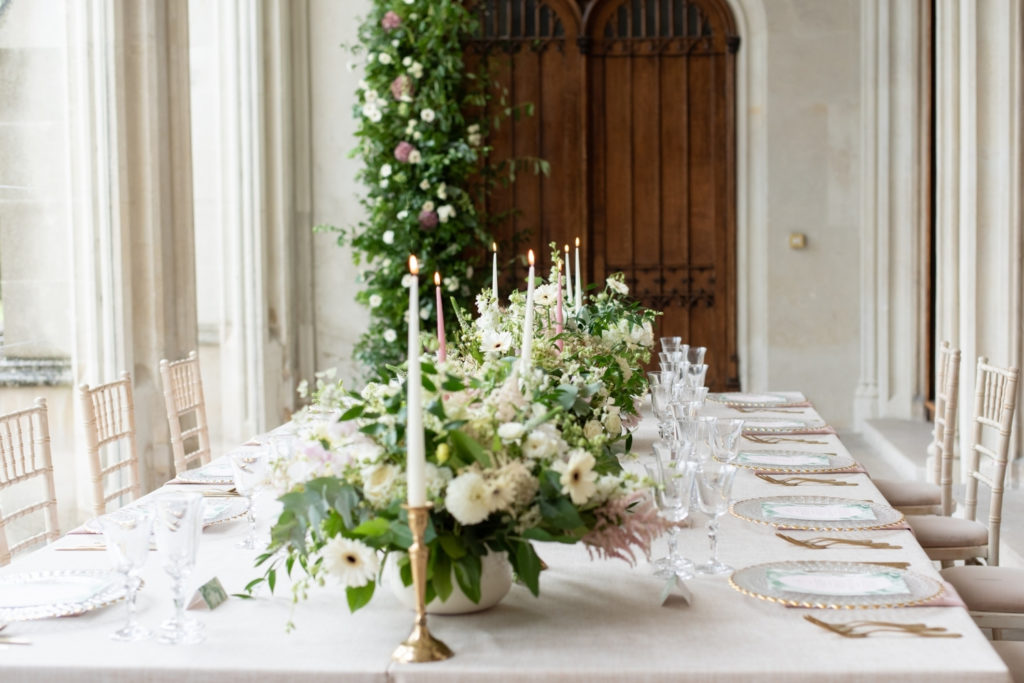
AVE Creations
Additional Credits
The below suppliers and venues are featured in this article, but are not part of the Love My Dress Wedding Directory.

